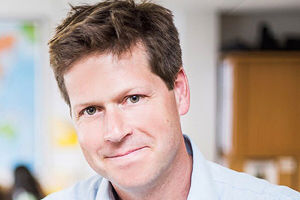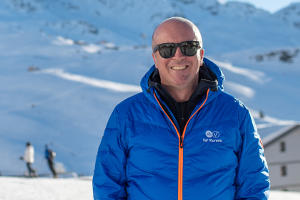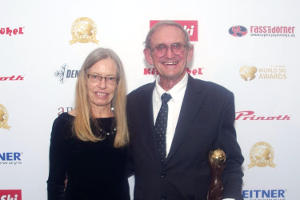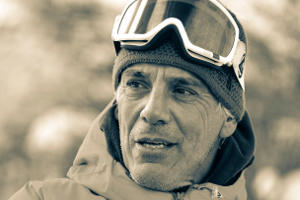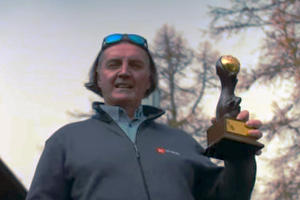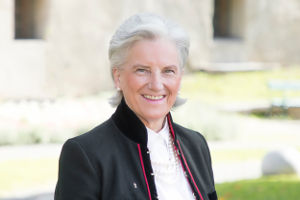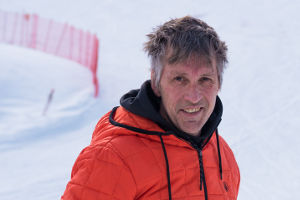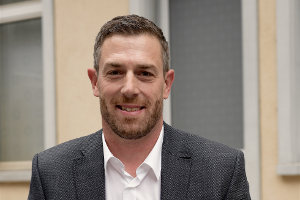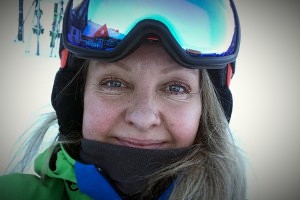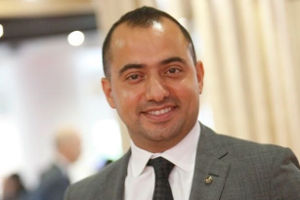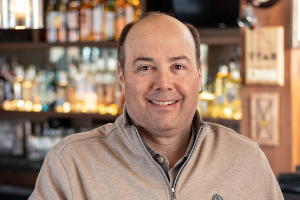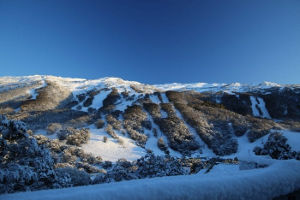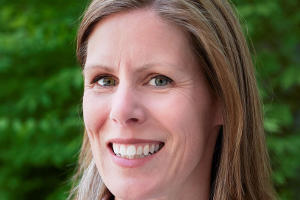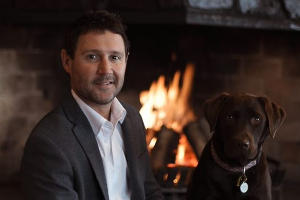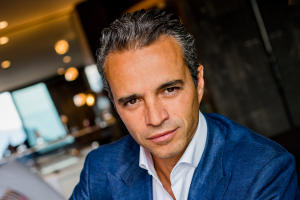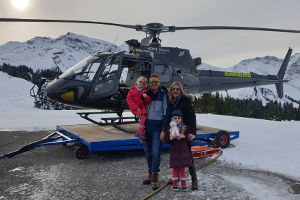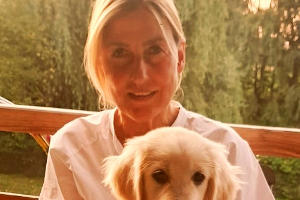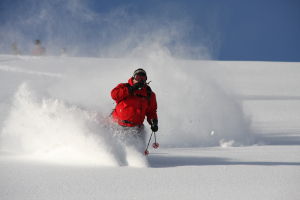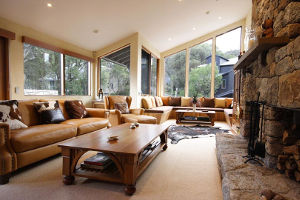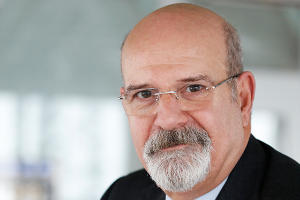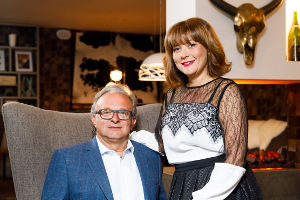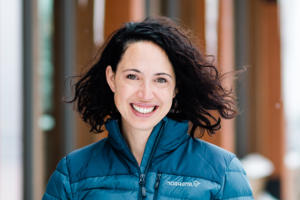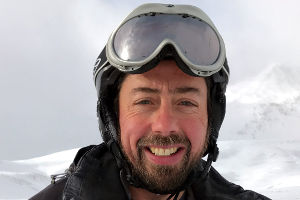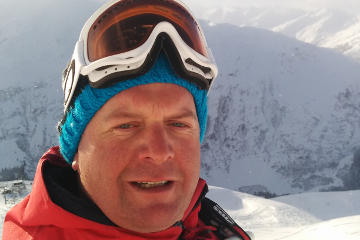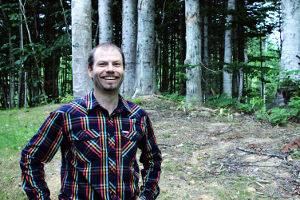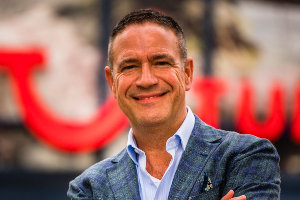- Home
- Enter
- Awards
- Events
- Media
- Gallery
- About
- Partners
-
Resources
- Finalists
- Digital Finalist Pack
- World's Top 3
- World's Top 3 Wall Plaque
- Winners
- Digital Winner Pack
- Winner Wall Plaque
- Advertising
- Best in Ski Advertising
- Log In
- Sign Up
- Search
- Home
- #ReStart

The World Ski Awards #ReStart initiative aims to galvanise the recovery efforts of the collective global ski tourism industry.
#ReStart is an on-going resource of information, practical advice, marketing and PR support, and a platform to aid the recovery of your business by bringing the industry together. And by working together, by pooling our collective knowledge and strength, there is the very real potential to emerge from the crisis better than we were before.

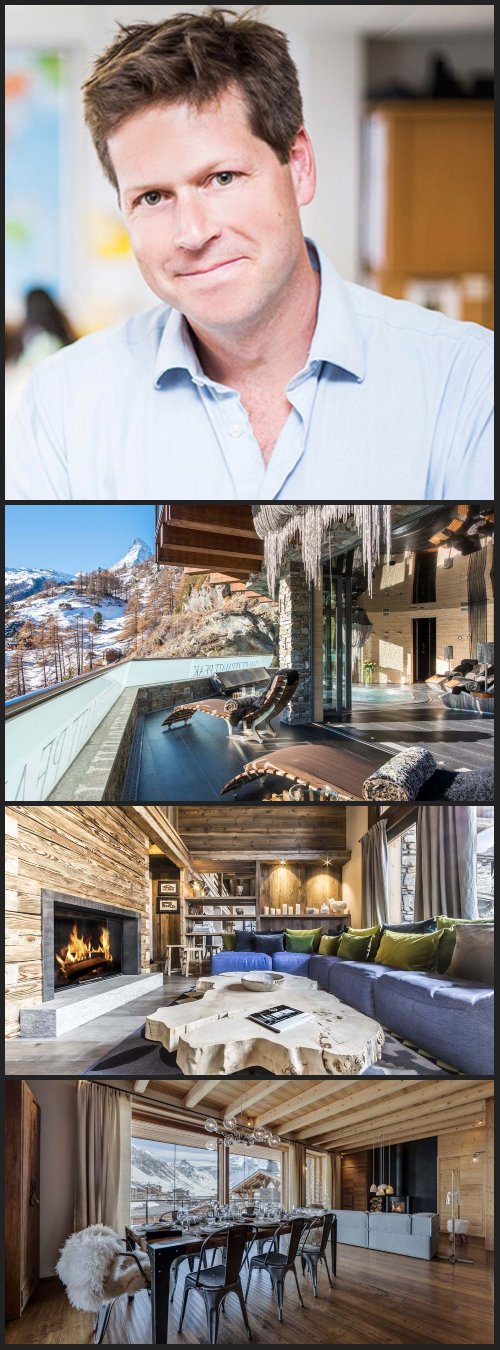
United Kingdom Ski Travel Agent
With unrivalled knowledge of the best resorts and chalets in the Alps, the Rockies and Japan, Oxford Ski Company provides expertly designed chalet holidays to groups and families. World Ski Awards talks to Rupert Longsdon, Founder & CEO, Oxford Ski Company.
WSA: What is the current status of operations at Oxford Ski Company?
RL: The focus is ALL about next winter. We have now near enough moved all clients that had hoped to go away the last ski season to next winter and so all operations and communications is about new bookings for next winter. Top and tailing the portfolio, adding new chalets that have come online, and removing some of those that have dropped off in terms of quality. Demand is strong for next winter and so it is imperative we have the right supply fit for purpose.
WSA: How does the Covid-19 crisis compare to other global shocks you have faced during your travel career?
RL: Much worse, completely different and certainly not something we had planned for or ever experienced before. The recession of 2008 undoubtedly had financial implication on many people and some totally devastating. But the world was still open for business. There were no travel restrictions. A travel business can not trade if you can not travel. That is the key difference. Even if clients have the money, which a lot of ours still do and some even more than pre-Covid, they have not been able to travel on the whole.
WSA: Can you give a brief overview of how the past year has mapped out for you and your team?
RL: In brief three phases. Phase one: crisis management to deal with the immediate fallout of the 176 bookings / 1,500pax who last minute had their holidays curtailed or cancelled in March and April 2020. That was hectic for all involved as we were navigating in unchartered waters. Phase two: over the summer and autumn the focus was dealing with rebooking some of those people into the following winter and also helping new clients who were hopeful to travel. There was a confidence that things would be fine by the winter. How wrong we were and come December the reality kicked in. Phase three: This was then the unfettered cancelling and deferring of all those clients. In fairness this time we had a bit more warning and clients were all understanding as the terms they had booked under covered Covid related cancellations. I suppose we are now in phase four, with all eyes, expectation and excitement on next winter.
WSA: What changes in the way you operate the business have you had to implement?
RL: The biggest and most devasting change was the reality that things were not going to return to normal for a while and therefore the forced restructuring of the business to survive, through no fault of our own. This sadly led to two rounds of redundancies and a 50 percent cut in the team. These were both excellent rising employees and many long-standing employees whom were being made redundant. This was a hard and difficult process for a close-knit business. Furlough has helped limit this theme, but it was never going to be the silver bullet.
WSA: Why do you think collaboration across the ski industry is the key to tackling the post-pandemic landscape?
RL: I strongly feel that our business as an agent is all about collaboration. We are (as we always have been) working closely with our clients and suppliers at all times to facilitate getting as many people to the ski resorts as possible. This has not changed. I do think, however, that Covid might have been a further catalyst to building better collaboration at operational levels. I know more chalet operators are looking at efficiencies and economies of scale with sharing staff, vehicles, food suppliers etc, which is a good thing. When we operated chalets back when I started the business, I collaborated with other companies to get better contracts on resort vehicle leasing, food and drink suppliers and any number of other resources/services – I see this all as positive collaboration.
WSA: What trends in the luxury ski market do you see emerging as the recovery gets underway?
RL: Clients are looking for longer stays, more than the standard week, 10 or 14 days but also long terms seasonal lets. We’re also seeing clients wanting to ski more than once next season to make up for missing a couple of years – we empathise. There has also been a move for clients upgrading to larger or better chalets to accommodate bigger groups – celebrations seem to be high on the agenda, 50th and 60th birthdays.
WTA: Have there been any changes in your own outlook that you see as a positive reaction to the pandemic?
RL: It has been a very challenging time for so many people. Unfortunately there will be some losers, like in the last recession. However I firmly believe that the quality of the product left will be better for the consumer. A higher quality of property and service, increasingly flexible bookings terms, flexible services on holiday from bed and breakfast to full board. Finally, but critically, as we have seen in so many walks of life in the past 18 months, looking after this world has potentially never felt more important. Ski resorts, chalet operators, transfers companies, airlines and beyond are all looking at their own environmental footprint and how this can be improved as a company but also for their clients. For example, we now carbon offset our clients’ accommodation and transfers, work alongside POW to support their endeavours and have partnered with EcoSki to help showcase the best eco conscious outdoor apparel brands in the market...


France Ski Resort
Voted ‘World’s Best Ski Resort’ Val Thorens is Europe’s highest ski resort and home to an unrivalled range of terrain, accommodation options and après-ski. World Ski Awards talks to Vincent Lalanne, Director of Val Thorens Tourism.
WSA: What adaptions have you had to make in order to operate this summer? And what are you plans for the winter season?
VL: We had to follow all the national health prescriptions for distancing on the different lifts, in the tourist office, in all different offices and in every place that receives the public, such as restaurants, swimming pools and children’s playground. We have created a local label CLEAN UNITED with an evolutive web page, to ensure that everybody gets the correct and most recent information.
WSA: As part of Les Trois Vallées, the world’s largest ski area, what do you see as the main challenges to operating this winter?
VL: We offer a unique place in the world appreciated by all skiers, but our goal will be to keep our international customers. So the main challenge will be to offer all of them open travel opportunities.
We will probably have more French and European clients due to remaining travel restrictions and they will probably travel mainly by car.
WSA: How was life in town during lockdown?
VL: The lockdown was a strange period because it came right in the middle of an amazing season, and suddenly everything went very quiet and peaceful. The weather was absolutely fabulous, as was the snow. We are lucky to live in a beautiful region and we rediscover how fortunate we are to live in pure nature.
WSA: What trends in ski tourism do you see emerging as a result of the crisis?
VL: Probably the end to global mass tourism and a new focus on responsible destinations. We’ll see more respect for nature, people and locals.
WSA: As one of the world’s leading ski resorts, what advice from your experiences would you offer to other resorts?
VL: It would be pretentious to give any advice to other resorts, we all manage different resorts with different assets. My only advice would be to love your clients and your jobs.
WSA: Why is collaboration across the ski industry the key to navigating the post-virus landscape?
VL: Nobody in our business is a new Einstein and we all live on the same planet; our experiences are the sum of the best experiences we’ve seen in our business.
Alone we can go faster, but together we go further!
WSA: Have there been any changes in your own outlook that you see as a positive reaction to the crisis?
VL: We’ll have to be more adaptive and reactive to all trends to be sure to stay innovative for the future of our business. As we know and we say now, ‘impossible is not an option’.

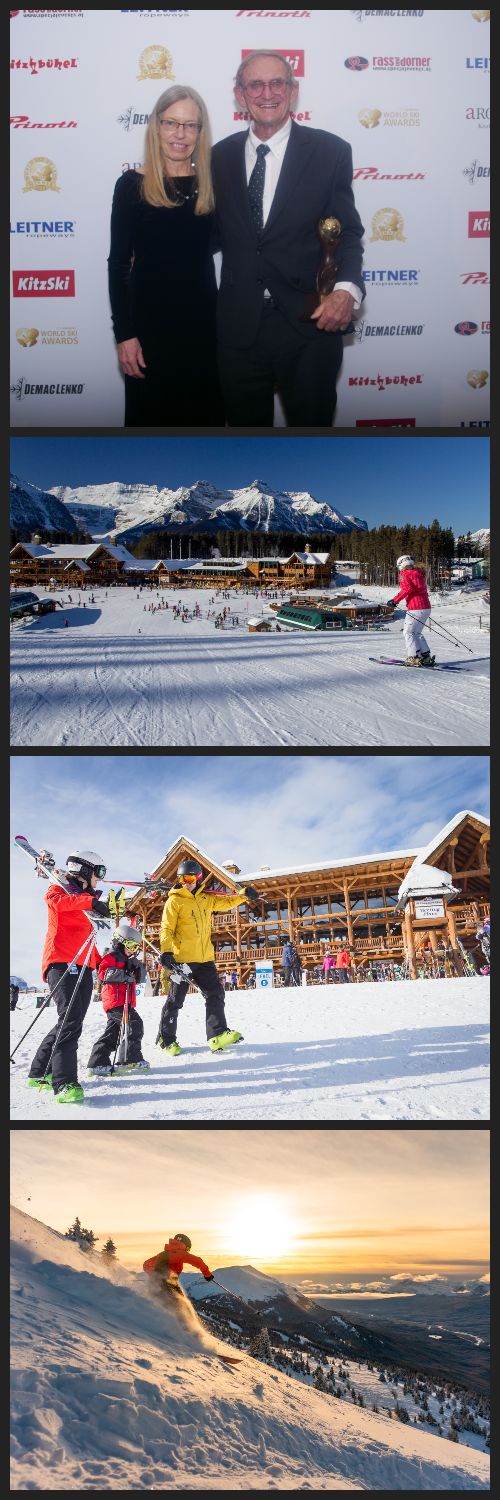
Canada Ski Resort
Voted ‘Canada’s Best Ski Resort’, Lake Louise Ski Resort is home to spectacular Rocky Mountain scenery, incredible terrain and its glacial lake ringed overlooked by a stately chateau. World Ski Awards talks to Charlie Locke, Owner and President, Lake Louise Ski Resort.
WSA: How was life in town during lockdown?
CL: Lake Louise attracts people worldwide, and after all of the visitors and many of the community’s temporary residents returned home, it was almost surreal. We have many long-standing community members, and it was great to see these individuals and area businesses banding together to support each other.
At the ski area, we were busy in the background. After we wound down the winter season, we determined how best to support our employees and community during the lockdown, then started planning for the summer as soon as we knew it might be possible, and preparing even further out for the winter 2020/21 season.
WSA: What adaptions have you had to make in order to operate this summer? And what are your plans for the winter season?
CL: We reacted last March very quickly to implement health and safety initiatives based on physical distancing, enhanced sanitization and disinfection, hand sanitizer stations, and moving indoor operations to the outside. As health guidance evolved, we added additional measures like health screening, contact tracing, masks, clear plastic barriers between employees and guests when appropriate, and one-way directional movement of foot traffic.
Safety is our top priority. Over the summer, we wanted to ensure that, in all circumstances, we can meet and exceed health and safety-related guidance while still offering a top-quality product and a great guest experience. This will continue throughout the winter, and our team has proven that they are adept at making quick adjustments as the guidance continues to evolve.
We are optimistic for a successful winter season. We are already one of North America’s largest ski areas. On top of this, we are opening a new chair and adding 195 hectares of additional terrain this year – the first of many projects from our recently approved Master Plan. We are fortunate that we have a lot of area to offer skiers a safe and enjoyable experience. Our health and safety measures will continue, of course, and we will keep apprised on the most current health recommendations and adapt accordingly.
WSA: What trends in ski tourism do you see emerging as a result of the crisis?
CL: One of the significant trends we’ve noticed emerging is how we can improve efficiencies to make our guest experience even better, and how that adds to our guests’ experience on the mountain overall. Another trend we’ve noticed is the collaboration between fellow ski resorts all around the world. It’s been incredible to see everyone coming together to share information and advice on continuing to navigate these challenging times.
WSA: As one of the world’s leading ski resorts, what advice from your experiences would you offer to other resorts?
CL: First, focus on your guests. Like the connections we’ve had with our industry partners, we’ve also found it has opened up more direct and genuine conversations with our guests. Also, embrace the concept that from challenge comes opportunity. Use this time to evaluate all aspects of your operation and determine where you can make lasting changes for the better.
WSA: Why is collaboration across the ski industry the key to navigating the post-virus landscape?
CL: With rapidly changing information, there must be an ongoing dialogue with our partners to share ideas, problem-solve and learn from each other. While the pandemic has presented many challenges, it has also uncovered many opportunities. Being able to address both as the situation continues to evolve ensures that we are doing our very best for our guests and staff.
WSA: Have there been any changes in your own outlook that you see as a positive reaction to the crisis?
CL: We’ve come to realize that in the past, we may have taken some things for granted. It has spurred a new appreciation for the essence of what we do and a new sense of gratitude for where we work and live. It has made us more agile by questioning the status quo and exploring new ideas that weren’t considered previously.

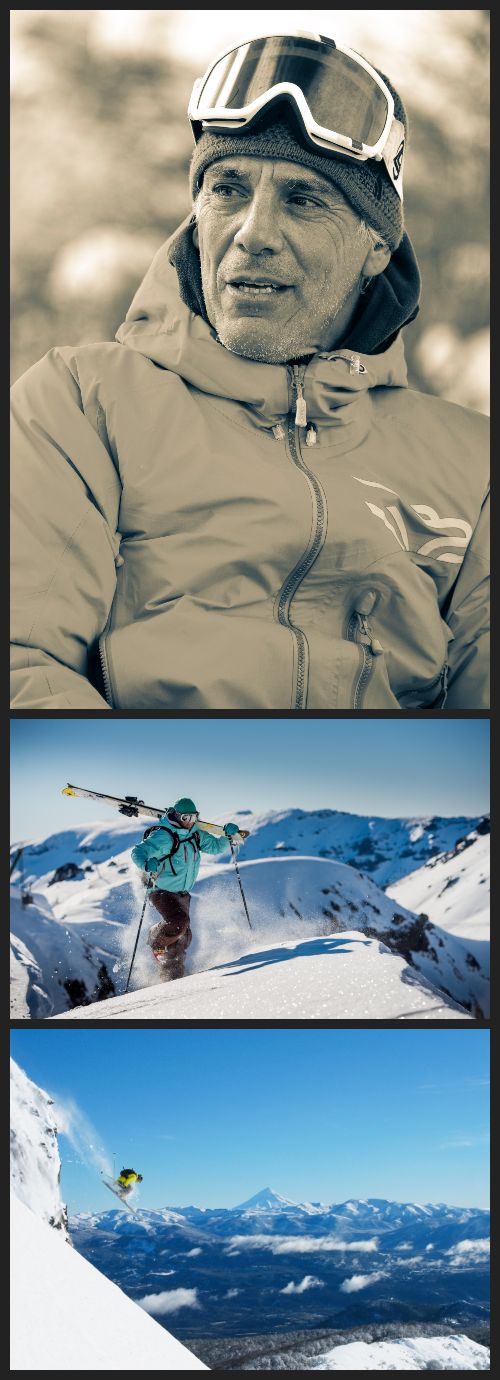
Argentina Ski Resort
Argentina was in the midst of lockdown when Chapelco’s winter season was scheduled to start. World Ski Awards talks to Juan Cruz Adrogue, President of Chapelco Ski Resort about how his resort is confronting the challenges set by the global pandemic.
WSA: What is the current status of operations in Chapelco?
JCA: Chapelco is fortunately placed in a Covid-Free area. We opened on 1 August, six weeks later than usual. In the first week, only residents could visit the ski centre. After that, national health authorities allowed people from nearby cities and from other Covid-Free locations to travel to San Martin de los Andes, and to ski in our resort. Services related to the ski industry will begin to re-open soon, so we will start the ski season late, albeit with no good economic results expected.
We are working under strict protocols to give staff, the mountain community and visitors a safe environment: body temperature tests, social distancing, hygiene and sanitization. Masks, gloves and eyes protection are mandatory. We recommend visitors buy services on our web platform Chapelco.com.
Chapelco registered the highest snow falls records over the course of the season. In addition, forecasts predict more snowfall during the last weeks of August and in September.
WSA: How was life in the resort during lockdown?
JCA: Lockdown in the South Hemisphere started at the beginning of autumn. We were positive and kept working on all projects with enthusiasm to open the mountain at its best, either for many or for few visitors.
WSA: The local community in Chapelco is heavily reliant on ski tourism. What has been your leadership approach during the crisis?
JCA: Winter tourism is the main economic activity in San Martín de los Andes and Chapelco Ski Resort. During lockdown, we committed to the mountain community to open the resort no matter how the season would go. No economic speculations were taken.
The ski season usually runs from 20 June to 30 September. Chapelco improved conversations with authorities to get the approval for the opening, which happened on 1 August.
WSA: Why is collaboration across the ski industry the key to navigating the post-crisis landscape?
JCA: Collaboration is always the key, with or without a crisis. We worked closely with other ski resorts in Argentina to develop specified protocols for ski resorts. We are in constant communication about these and other matters, because we need to make skiing a safe activity for all visitors, no matter what resort they choose. Moreover, the only way to make people feel safe is by working together.
WSA: How do you think the ski tourism industry will look after Coronavirus compared to before?
JCA: The ski industry is resilient by nature, and will emerge stronger. Skiing is an outdoor activity where people need to be distant one from another, and need to behave with many of the habits now required by protocols. That will be our strength in the near future versus other destinations or activities.
We believe that in the future, more Argentines will spend their winter vacations in Argentina choosing places to interact with nature. That is an opportunity for us.
WSA: What trends in ski tourism do you see emerging as a result of Covid-19?
JCA: Interest in backcountry, touring skis and split boards had already increased before lockdown. The possibility of a winter season with ski resorts closed, made that interest grow much more, thereby increasing the sales of equipment.
WSA: Have there been any changes in your own outlook that you see as a positive reaction to the crisis?
JCA: Yes, I have slowed down, assign priorities, value small things, make new choices and plan more efficient work methods. It is time to be grateful, enjoy home, and take care of family and friends.

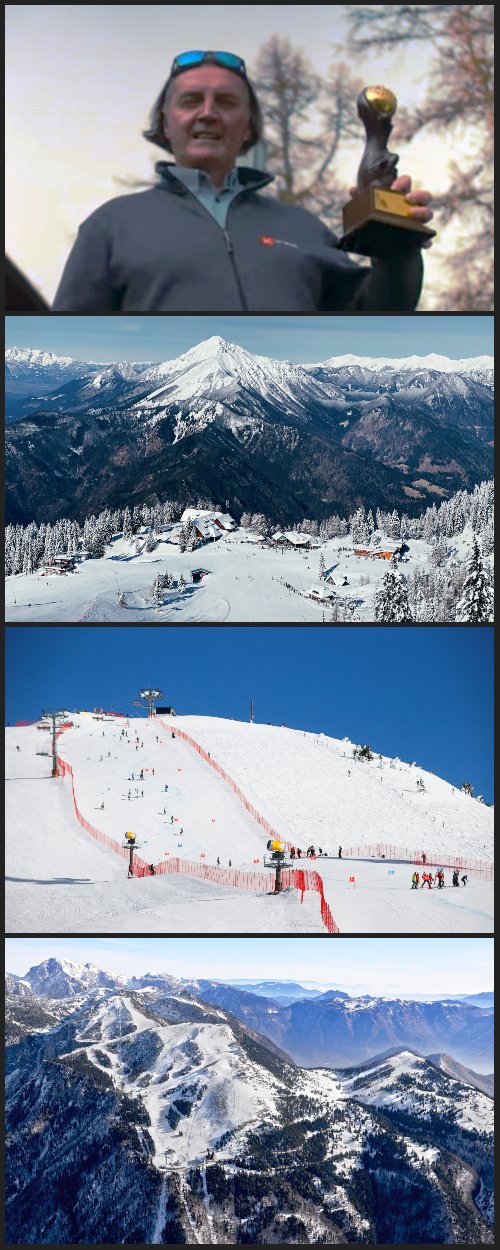
Slovenia Ski Resort
Krvavec has enjoyed the longest ski season in its history albeit against a backdrop of Covid restrictions. World Ski Awards talks to Jani Janša, Director, Krvavec about how his resort is confronting the challenges set by the global pandemic.
WSA: What is the current status of operations in Krvavec? And can you give a brief overview of how the past year has mapped out?
JJ: We finished this years’ winter season on the 28th May, which means that we have been operating for 123 days. This is the longest in the history of Krvavec that people were able to ski. The 123 operating days this season is by far the best result among ski resorts in Slovenia, and we believe that we are close to the top, if not at the top, of the number of operating days this season among other ski resorts in Europe. If I may summarize these numbers individually, we were finished in 1, 2, 3. This past year was chaotic to say the least because of Covid restrictions. We were 100% ready to operate, but we had to close down and re-open four times because of the ever-changing government restrictions, which resulted in mass confusion amongst visitors as well as our employees.
WSA: What changes in the way you run the resort have you had to implement?
JJ: First and foremost we had to abide by our governments instructions to send our workers on a “waiting period” from work. From the leading perspective this meant that we had to achieve a whole new set of organizational skills. For example: organizing new working schedules, the number of employees present, quote of attendance, what to do first, what we can postpone. A lot more work in this department than usual.
WSA: With the resumption of international travel thankfully back on the horizon, how do you see the next year taking shape for Krvavec?
JJ: I believe that international travel, on the same scale as we once knew it, won’t happen next year. Therefore I do not expect a big international crowd on our ski slopes just yet. I sincerely hope that a season like this one never happens again. That being said and given the fact that we really did our best during this last winter, I hope that our loyal visitors will appreciate that and will return in the years to come.
WSA: What trends in ski tourism do you see emerging as the recovery gets underway?
JJ: I think that in the future there will still be a fear of Covid and other infectious diseases and that people will need sometimes to again carelessly move around.
The trend will continue in a form of more intimate, family vacationing, less big parties after the slopes close. The carefulness and the distance will remain not just because of the restrictions, but because people will remain careful until we have beaten this virus.
WSA: Have there been any changes in your own outlook that you see as a positive reaction to the pandemic?
JJ: This year gave us a chance to closely monitor our working progress, to really get into details about what is needed and what is not necessary, what cuts the costs and how we can do more in less time. So this Covid “era” brought us an opportunity to analyze how Krvavec works.


Norway Hotel
The family-run Nermo Hotell in Øyer, Norway has been operating since 1877. Johannes Nermo is the 5th generation and together with his wife Susan have hosted everyone from royalty and head of states to companies and families. Here he shares his experiences of how his hotel is confronting the challenges set by the global pandemic.
When the Norwegian government shut down the country 12th March, I think many did not understand the extent of what Covid-19 was. Fortunately, we reopened relatively quickly and tourism in Norway, apart from the big conference hotel had a very good summer. Over the autumn, it quickly became clear that the large summer traffic led to increased infection and the authorities partially closed us down again in early November.
Due to the ever-changing guidelines from the authorities and relatively high infection rates, the hotel has been more or less closed from 3rd January. We are planning a full reopening on 20th June.
We understood relatively quickly that Covid-19 would bring about significant lasting changes in tourism locally, nationally and internationally. History has shown that tourism will return and therefore our main focus over the past year has been to retain our employees, so that we are ready when it happens. We have also focused on training and continuing education of employees. The experience from last year’s summer season, showed us that extra focus on quality, hospitality and service fills our beds.
Covid-19 surpasses everything, even though 9/11 and the financial crisis in 2008 were tough, this is without comparison the worst I have experienced.
We have spent the last year refurbishing, built three new suites, herb garden, farm sale and building four absolutely spectacular rooms in two old log houses from 1850. These rooms will be completely unique and never been done before. We do this because we see that smaller hotels with a strong focus on quality are now winning the battle for guests. Internationally, Norway appears to be safe and our foreign guests are increasingly in demand of unique experiences.
We believe in a very good summer this year and have never had such a good booking for the coming autumn as now. However, we are still nervous about what the coming winter season will be like. If history has taught us anything, it is that Covid-19 is unpredictable and increased infection internationally can also have consequences for tourism in Norway. We are also excited about how the aviation industry will return. Fewer arrivals to Norway will result in fewer international guests.
I think it’s more important than ever to learn from each other. Different countries have had different restrictions. In Norway we have managed to keep the ski resorts open with little or no outbreak of Covid-19, while others have had to stay closed. It is therefore important that in the future, we are to a far greater extent, have to share our experiences. We must also work together recreate the desire to travel and that our future guests should feel safe doing so.
High quality, sustainability, personal service and good infection control routines are some keywords for the future. Our future guests will travel where you feel safe. This applies not only to the destination, but the entire journey. From train, taxi, airport, flight, arrival and transfer to destination. Those who manage to create a safe travel experience at all levels will succeed.
I have learned to have more focus on our core product and cultivate it. At the same time, we now have an even greater focus on who we work with and what we can do together to come back. Those who do not focus on our core values such as hospitality, service and quality will no we longer cooperate with. We will work with fewer international suppliers in the future but increase the collaboration with those we have.

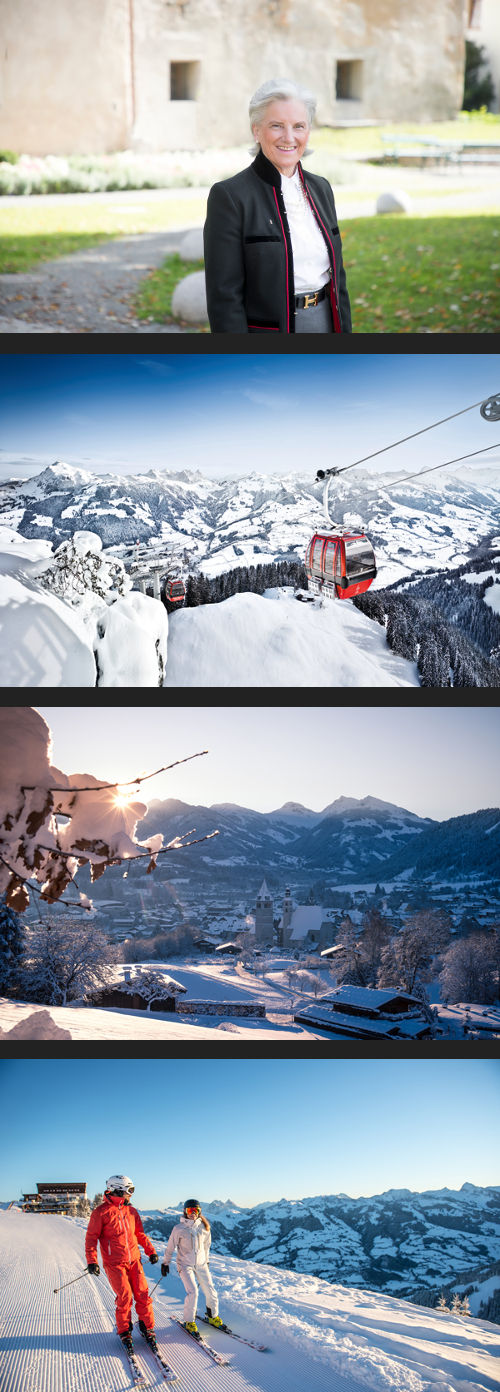
Austria Ski Resort
The home of the legendary Hahnenkamm race and the host of World Ski Awards, Kitzbühel represents the heart of Austrian skiing. World Ski Awards talks to Signe Reisch, President of Kitzbühel Tourisme.
WSA: What is the current status of Kitzbühel’s operations?
SR: Fortunately, we reopened most hotels on May 29th. The rest will open throughout July. Kitzbühel itself, on health grounds, has hardly been hit by the virus and is now completely Covid free.
WSA: How was life in town during lockdown?
SR: Quiet! Compared to the typical hustle, it was weird at first. Anyhow, we enjoyed the peaceful time with family and friends and took care of all the things that there usually never was time for.
WSA: What measures have you taken to mitigate the impact of Covid?
SR: We weren’t really in control of any measures, as it was all done by the government. Closing all businesses on March 15th, total lockdown of the entire state of Tyrol for several weeks and any other accompanying measures.
WSA: What changes can we expect in the way Kitzbühel operates and adapts this summer season? And for the winter ski season?
SR: Honest answer, not too many changes. We remain on our course. Standards regarding hygiene are already very high, as well as all other standards regarding the hospitality industry.
WSA: How do you think the ski tourism industry will look after Coronavirus compared to before?
SR: Since skiing is an open-air sport, the infection chance is negligible. For resorts that have always operated on high quality standards, there won’t be much change.
WSA: What trends in ski tourism do you see emerging as a result of Covid?
SR: I don’t think that a trend will emerge from this crisis. Maybe outdoor sport will become more popular. People will certainly be more aware of where they book and of the standards of the places they look into.
WSA: Why will collaboration across the ski industry be the key to navigating the post-crisis landscape?
SR: Collaboration has always been important. And now more than ever it is important to work together to exchange ideas, innovations and case studies, so everyone avoids making the same mistakes. Collaborations, if done constructively, can only be a win-win situation.
WSA: As a world leader in alpine tourism, what advice from your experiences would you offer to other ski resorts?
SR: There is no ground-breaking advice that I can give, besides, now more than ever quality and putting guests above all else to ensure the best possible experience.
WSA: Ski resorts across the world will have to work harder to attract guests as the market recovers. What methods are you using to attract visitors back to Kitzbühel?
SR: We are lucky to have a great foundation of regulars. Nevertheless, we are also working on new offers and adapting strategies to attract new guests of all sorts.
WSA: Have there been any changes in your own outlook that you see as a positive reaction to the crisis?
SR: Life in tourism can be, or mostly is, very stressful. Through the crisis I learned to now sometimes take a step back, take a deep breath and tackle whatever as calm as I can.

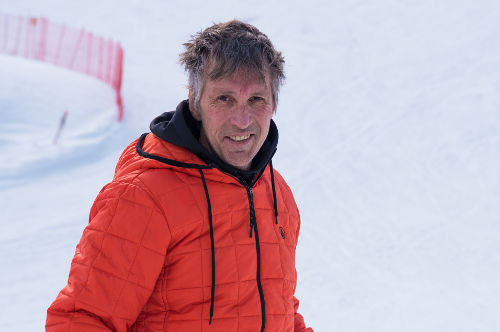
Russia Ski Resort
Rosa Khutor is Russia’s largest and best ski resort, and host of the alpine skiing events of 2014 Winter Olympics. World Ski Awards talks to Yury Kolobov, First Deputy General Director & CEO of Rosa Khutor.
WSA: What is the current status of Rosa Khutor’s operations?
YK: Now the company is launching its tourist infrastructure step-by-step. The cableways to Rosa Peak (2,320m) and to the Mountain Olympic Village can be used by visitors. Cafes and restaurants, and the waterfront promenade in Rosa Valley are open. Hotel reservations started on 8 June, and 14 hotels in the resort have already been accepting the guests since 1 July.
Tourists can hike and climb to more than 2,000m above sea level. One of the most impressive attractions in the region – Mendelikha Falls Park – has also been opened. It is located on the southern slope of the Aibga Mountain Ridge, at an altitude of 1,470m. There are special trails, including to the bottom of waterfalls, viewing decks with railing and views for taking pictures. The route to all seven waterfalls is 4km long and takes about 4.5 hours. The Zolotoy is among the highest waterfalls in Sochi. We have opened the Centre for Outdoor Activities, equipment rental, information centre and parking. There are popular attractions as summer bobsledding (Rodelbahn), high-mountain swing and much more.
WSA: Describe how life was in the resort during lockdown?
YK: During the quarantine all tourist infrastructure facilities were closed. However, we had plenty to do. For example, we carried out the service maintenance of cableways. All this was not easy: masks, disinfection, but we managed to succeed. In addition, of course, we were developing a new concept of rest in the resort’s summer season; we have a new strategy, plans and understanding how to implement them. So we used the period of forced downtime to the maximum benefit.
WSA: What measures have you taken to mitigate the impact of Covid-19?
YK: We have done everything necessary for the safety of our guests. All personnel undergo weekly laboratory clinical testing in accordance with the requirements of Rospotrebnadzor and are provided everyone with necessary personal protective equipment.
The resort has created a contactless environment: electronic plastic cards are used at check-in and check-out at the resort hotels; cashless payment means are used; safe door handles are installed in guest rooms and public areas; sneeze guards are installed at reception desks and other public areas. Hotel entrances, both for guests and personnel, have disinfection barriers in place with fine-disperse spraying of the safe disinfectant.
Antiseptics are available in all major public areas and in the rooms, and regular wet cleaning with disinfectants is ensured. Rooms are equipped with removable mattress covers and air conditioning filters.
The buffet format has been preserved in the hotel restaurants, taking into account social distancing and safe location of service stations with ready meals. Breakfast opening hours have been extended to avoid crowding. At the same time, hotel restaurants will continue working on A La Carte basis for lunch and dinner, taking into account all necessary requirements.
WSA: What changes can we expect in the way Rosa Khutor operates and adapts this summer season, and next winter?
YK: We conducted a special survey of the resort audience, which confirmed that people, after a long period of self-isolation, literally need a reset. Therefore, we expect that 80-90% of the resort’s room stock will be occupied by the end of July.
Many are ready to come to rest in the mountains, as it is the best place to recharge, restart, focus on physical activity and enjoy the fresh air. That’s why this year we are focusing on healthy and active rest, hiking, trekking, entertainment and activity for the whole family, as well as introducing new special packages tailored to the needs of the audience. We have prepared new mountain hiking and cycling routes. Their total length has been significantly increased. Guests will once again get lots of breathtaking emotions while strolling over the suspension bridges, swinging on the high mountain swing and riding the Rodelbahn.
In October, we will welcome guests for the traditional Rosa Run 2020 festival, which is very popular among mountain runners. The programme includes not only races, but also a variety of activities: “vertical kilometre”, team quest, mountain trail, competitions for fans, lecture course, battles, workshops, sports goods fair and much more.
I would like to speak separately about the highlight of the last winter season: RosaQuest. Problem-solving in this quest mixed it up for our guests. The territory of the resort has become a large playground: from December 21 to March 9 the quest was held every weekend, from March 10 it moved to a daily format, and from 2 to 12 of April during the self-isolation it transformed into an online project. During the season, more than 10,000 players participated in the quest, which is not surprising, because in one project we managed to combine outdoor and digital.
Players were offered more than 250 different and unique tasks. For those who had rested in the mountain resort for the first time, the quest was a great opportunity to explore Rosa Khutor, and for those who were well oriented on the terrain – to look at familiar routes from a different perspective and add drive to the skiing.
WSA: How do you think the ski tourism industry will look after Coronavirus compared to before?
YK: We are all waiting for global changes that will affect both consumers and service providers. Service providers will provide new tour products to address changes in consumer interests.
WSA: What trends in ski tourism do you see emerging as a result of Covid-19?
YK: A virtual space will be created where tourist destinations and ski regions can be seen. Proposals in this digital space will be formed taking into account “360 degree customer view”.
WSA: Why will collaboration across the ski industry be the key to navigating the post-crisis landscape?
YK: International cooperation is a necessity of the 21st century. Partnership in different sectors has been developed all over the world. Tourism is no exception, especially with regard to the losses caused by the current crisis. In order to attract guests to the resort, it is necessary to offer them the highest quality and most attractive tourist product. To form such an offer, it is necessary to have experience of the best practices, for example, based on the achievements of partners. Also, the price offer of a resort is always more advantageous when a guest of one resort receives discounts and various bonuses when visiting a partner resort. One outstanding example is the development of international tourism at the Rosa Khutor Resort in cooperation with the best partner resorts in Kitzbühel, Austria and Shymbulak, Kazakhstan.
WSA: As one of the world’s leading ski resorts, what advice from your experiences would you offer to other resorts?
YK: Rosa Khutor has rich experience in creating price offers for tourists of different categories, in promotion of tour products. The resort is an example of an effective Olympic legacy. For over a decade, we have accumulated experience and are ready to share it. Only by joining our efforts will we be able to cope with the consequences of the global crisis.
Rosa Khutor was the first resort to join the Russian Union of Travel Industry. The largest industry association includes more than 3,000 representatives of the Russian travel industry, including tour operators, travel agencies, hotels, health resorts, transport, insurance, consulting, IT-companies and other organizations operating in tourism industry.
WSA: Ski resorts across the world will have to work harder to attract guests as the market recovers. What methods are you using to attract visitors back to Rosa Khutor?
YK: Perhaps we will focus on further development of the service. We are keen to see our resort as a hospitable place centered on the interests of all our guests. We understand that people have come to us to have rest and it is important that we help them in this. As they say about waiters, the best waiter is the one who is not visible, but you have everything. Figuratively speaking, that is what we should do: our guests don’t notice the presence of our services and feel the harmony with nature: alone, but in absolutely comfortable conditions.
In addition, we continue developing infrastructure that will also improve the comfort of our guests. In the coming winter season we are planning to open a new gondola of the new Doppelmayr D-Line model range with cabins for 10 passengers and a maximum capacity of 2,400 people per hour. This will make skiing in the resort even more comfortable.
To sum up, I think we will offer our guests a unique combination: pristine mountain beauties, fluffy light snow, which can not be found anywhere else, good tracks, diverse après-ski, excellent service and, as a result, high-quality and safe rest.
WSA: Have there been any changes in your own outlook that you see as a positive reaction to the crisis?
YK: Once again, I made sure that you should never rest on your laurels even if you are already a recognized leader. You must constantly improve yourself, you must move forward. And you should take overcoming difficulties and complex circumstances as opportunities for self-development.


Switzerland Ski Ski Resort
Voted ‘World’s Best Freestyle Resort’ at World Ski Awards 2019, LAAX, Switerland is home to a vast array of slopes and world-class terrain parks, half-pipes and off-piste free-riding possibilities. World Ski Awards talks to Markus Wolf, CEO, Weisse Arena Gruppe.
WSA: What is the current status of LAAX’s operations?
MW: We were able to restart lift operations in early June – just like all resorts in Switzerland. All lifts are running in usual summer mode now.
WSA: How was life in town during lockdown?
MW: It was very quiet. No tourists and neither holiday-home owners around town. Just a few locals, empty streets, many closed stores, abandoned ski pistes and extraordinarily warm weather for this time of the year. And most importantly: a lot of questions waiting to be answered! There was an omnipresent uncertainty amongst all of us.
WSA: What changes can we expect in the way LAAX operates and adapts this summer season? And for the winter ski season?
MW: There are, of course, some changes due to the governmental obligations concerning Covid-19. Measures like keeping distance while queuing, continuously disinfecting hands or wearing a mask in the gondola. Those rules are mandatory all over Switzerland.
In LAAX, we are trying to make social distancing for our guests as easy as possible. For example, at our restaurants, we offer mobile ordering: guests can order their food and drinks on the INSIDE LAAX App – it is completely contactless and they can skip the line to pick-up their order. Same goes for tickets: buying them online on the app means they don’t have to queue at the ticket office. Additionally, with the help of cameras people can check directly on the app where the shortest lines are at the lift stations.
In view of the 2020/21 winter season, we are currently working towards implementing even more mobile and therefore contactless possibilities for our guests. Mobile ordering used to be a nice to have convenience for our guests but has now evolved to become an important safety measure. Additionally, our season pass TOPCARD now comes with a pandemic coverage, which means guests will be refunded in case of another lockdown of the resort.
WSA: What trends in ski tourism do you see emerging as a result of Covid-19?
MW: At the moment we see that people are cautious of travelling overseas. Our bookings are mainly from Swiss guests, some from the neighbouring countries. In the long term, we think that guests will want more personal space: no packed gondolas and no back to back lines at the lift stations. Our guests want to feel safe; this includes the disinfection of surfaces as well as more flexible cancellation offers at hotels.
WSA: Why will collaboration across the ski industry be the key to navigating the post-crisis landscape?
MW: The ski industry, just like all of tourism, was hit very hard by the crisis. Early season endings, no more travellers, less people allowed in general, the list goes on. So now, more than ever, it is important to share knowledge. To help each other on how to deal with the difficulties we are currently facing. We need to spread ideas, solutions and possibilities. Together, we can make the ski industry a future shaper concerning how to deal with the post-crisis landscape.
WSA: As a world leader in alpine tourism, what advice from your experiences would you offer to other ski resorts?
MW: Listen to your guests. See their needs. Do they want more personal space, do they want access to disinfection? And most importantly always keep them informed on what is going on. People are insecure and the best way to help them feel safe and secure is information and transparency. None of us have ever faced a similar situation before, but we are in this together.
WSA: Have there been any changes in your own outlook that you see as a positive reaction to the crisis?
MW: Speaking for Switzerland, we see that Swiss nationals are exploring the country more than ever. Normally Swiss people tend to spend their vacations at the beach or overseas. So we are really pleased that Mr and Mrs Swiss have decided to discover the beauty of their own country this summer.

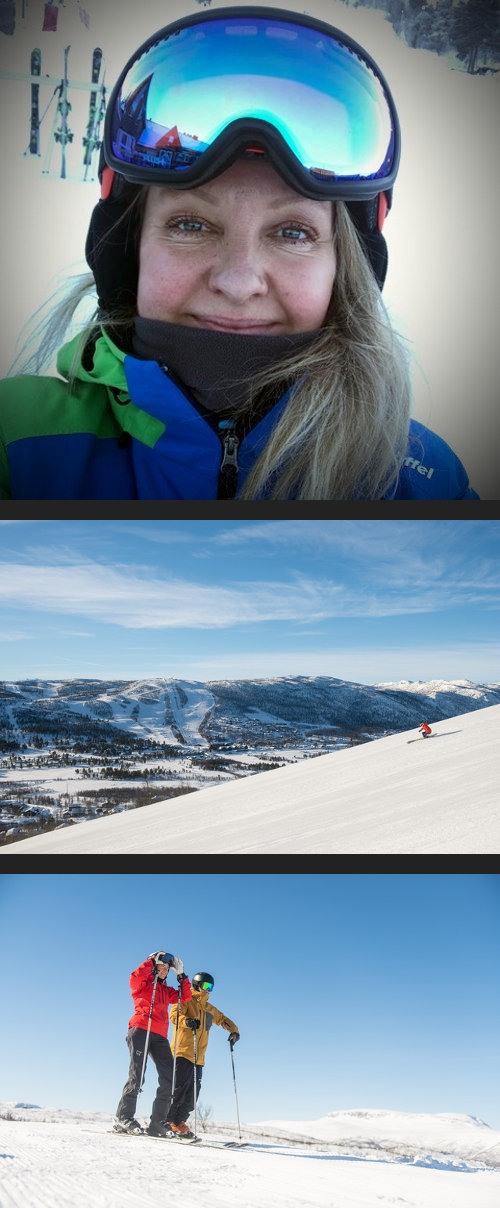
Norway Ski Ski Resort
Norway’s Geilo became one of the first European resorts to re-open for its summer season after lockdown. Unni Nymoen Forselv Moen, COO, lends her insights in getting the resort back into operation.
WSA: What is the current status of Geilo’s operations?
UNFM: Geilo has reopened again, and we are currently preparing for the peak of the summer traffic, which runs from mid-June until end-October. Obviously, this summer season will be different to earlier seasons, with most of the guests expecting to be Norwegians and Danish, compared to previous summers with guests from all over the world. However, we are optimistic and think we will have a different, but still good summer in Geilo.
WSA: How was life in town during lockdown?
UNFM: It was a very strange situation to find oneself in, but at the same time it was really quite impressive to see the way all Norwegians “pulled together”, making sure that everything went as smoothly as possible despite all challenges. In Geilo, as in most places in Norway, citizens volunteered to help fellow citizens and people became quite creative in finding new and safe ways to communicate and interact with each other. It was really strange to see how Geilo, which usually would be busy with guests on winter breaks, suddenly went quiet, and I think we were all very happy to be able to welcome visitors back to Geilo.
WSA: What measures have you taken to mitigate the impact of Covid-19?
UNFM: Early on, the Norwegian government set quite strict rules to both citizens and businesses to mitigate the impact. Home office, home schooling, social distance, and restrictions on number of people gathering in one place were some of the measures. Even though most of the restrictions are waived now, we still keep a very close eye on the situation, and make sure good hand hygiene, frequent disinfection of all surfaces and equipment, options for the guests to shop online, etc are followed through. We have also a training programme for all employees to make sure everybody thinks safety first.
WSA: What changes can we expect in the way Geilo operates and adapts this summer season? And for the winter ski season?
UNFM: I think in general this has been a rude awakening for the travel industry, showing us all that everyday life can change in a matter of days. Thankfully, at the moment it looks as if we will be able to run Geilo “as usual” for both the summer and the coming winter – but obviously the international travel restrictions mean that we expect to see a lot of Norwegians in Geilo this summer!
WSA: How do you think the ski tourism industry will look after Coronavirus compared to before?
UNFM: I think travellers in general will be looking for “safe” places to go, places with fewer guests, less crowded slopes, no cueing etc. The traditional après-ski will perhaps not be as important as guests will seek to replace this with other social activities that also allows for social distancing. We know that sustainability is becoming ever more important, and I certainly think this will push this further as well.
WSA: What trends in ski tourism do you see emerging as a result of Covid-19?
UNFM: I think that guests, more than earlier, will look to smaller resorts. Less crowded resorts will feel safer.
WSA: Why will collaboration across the ski industry be the key to navigating the post-crisis landscape?
UNFM: Unfortunately, Covid-19 was linked to some major ski resorts at the beginning of the outbreak in Europe, so the industry must make sure that we collectively take responsibility and make sure that we have, and will continue to have the best precautions possible in terms of preventing new and further outbreaks. Skiing must be a safe choice for the traveller.
WSA: What advice from your experiences would you offer to other resorts?
UNFM: First and foremost, I believe that it is crucial to take measures asap.
WSA: Ski resorts across the world will have to work harder to attract guests as the market recovers. What methods are you using to attract visitors back to Geilo?
UNFM: Being a smaller resort, and also situated in Norway – a country that has managed the virus quite well, I think that we should be able to attract guests with a simple message of safety first. Also, the world will move on from Covid-19 at one stage, and meanwhile, we will continue with our ordinary marketing work and marketing strategy.
(Photos: Vegard Breie)


United Arab Emirates Indoor Ski Ski Resort
After implementing a programme of stringent precautionary measures, Ski Dubai became one of the world’s first indoor ski centres to re-open after COVID-19. Mohammad El Etri, Director of Majid Al Futtaim Global Snow Operations and Projects, Ski Dubai, offers his insights into the operation.
What is the current status of Ski Dubai’s operations?
After more than two months of government-mandated closures in the UAE, we were delighted to reopen Ski Dubai at the end of May and welcome back our valued guests. Since reopening, we have seen numbers steadily increasing, demonstrating the appeal of the unique and memorable experience we offer our guests.
How was life in Dubai during lockdown?
The government put in place stringent precautionary measures to combat the spread of coronavirus such as enforcing restrictions on movement while conducting a sterilisation programme and introducing a comprehensive awareness campaign on preventative measures.
During the lockdown and closures, our team at Ski Dubai was relentlessly planning and preparing to reopen and welcome back our guests. In addition to conducting enhanced cleaning and sterilisation of the premises, we designed and implemented new safety protocols to ensure that our guests would feel comfortable about returning to Ski Dubai.
We also worked very closely with the various government entities responsible for crisis management, as well as Dubai Sports Council, and presented a comprehensive strategy demonstrating the extensive precautionary measures we would be introducing to ensure that we could reopen safely and confidently. This strategy proved instrumental in driving the reopening of Ski Dubai.
What changes can we expect in the way Ski Dubai operates and adapts in the wake of COVID-19?
We have put in place an all-encompassing sanitisation and physical distancing plan to ensure that guests can have an exceptional experience with added peace of mind. As recommended by the World Health Organisation and UAE Health Authority, we conducted extensive research to identify the top safety measures that would make guests feel most comfortable about returning to Ski Dubai and used the responses to proactively reimagine the guest journey.
Guests can now enjoy a completely queue-less experience by advance booking tickets online or at the new QR pod and we also offer contactless payment options. To ensure physical distancing is observed, we have also introduced safe distancing ambassadors and instructional signage throughout our premises. Ski Dubai is also operating at reduced capacity and we have limited the size of our lessons to a maximum of six people per group. We have also communicated our new safety precautions to our guests through numerous different channels to ensure that they are fully aware of them and adhered to at all times.
In addition to our already stringent sanitisation standards, we have put in place enhanced measures to ensure the health and safety of our guests and employees. We are using fogging machines to disinfect the premises daily and our employees are cleaning and sanitising surfaces after every guest interaction. Equipment is thoroughly cleaned using fogging machines and headwear and footwear is laundered after every use. As an added precaution, guests will also now receive their skiwear in a sealed bag.
Our guests feel reassured by the preventative measures that we have implemented, and we’ve received overwhelmingly positive feedback with 99% of Ski Dubai guests saying that they are either satisfied or extremely satisfied with the new protective measures in place. We’ve also received recognition from both Dubai Police and Dubai Sports Council for our outstanding safety standards.
Why will collaboration across the ski industry be the key to navigating the post-crisis landscape?
The global impact of the COVID-19 pandemic identified the need for enhanced cooperation and the importance of collaboration in overcoming these challenging times.
For guests to return to snow sports with confidence, it is critical to allay any concerns they have by showcasing the extensive preventative measures in place and demonstrating that they can still enjoy a safe yet exhilarating experience.
At Majid Al Futtaim, we are committed to leading by example and, during the closures, we were approached by snow centres and ski facilities around the world for ideas and advice on how to reopen safely. We have world-class safety measures in place and were delighted to collaborate with and assist other industry leaders on how they need to adapt their operations and play our part in the recovery of the global ski tourism industry.
What advice from your experiences would you offer to other indoor ski centres?
Having a robust reopening strategy with thorough health and safety measures will be a very important first step, as well as working closely with the relevant government entities.
From a customer perspective, it’s essential to have a clear communications plan that outlines all the measures that have been implemented and ensure that all of these measures are constantly being adhered to in order to regain customer confidence. Some guests will be cautious about returning to public places so it’s crucial to assure them that their safety is our top priority. We have highlighted the enhanced health and safety measures in place through video and social media content which has allayed any concerns our guests may have as they have seen that we are exceeding guidelines and going above and beyond to provide a safe and comfortable environment.
Have there been any changes in your own outlook that you see as a positive reaction to the crisis?
I was really inspired by the shared determination and resilience of our team to ensure that we could reopen safely and welcome back our guests, which highlighted how teamwork can help overcome great obstacles. This period has also reiterated to me the importance of customer-centricity and the need to adapt our experience in line with our guests’ needs, which is why we have introduced a new guest journey with enhanced health and safety measures.
The team really pulled together during a challenging period and quickly adapted to the way the business now operates post-lockdown. We pride ourselves on delivering an exemplary customer experience and out team are dedicated to ensuring that guests feel welcome and safe and can enjoy an exceptional experience at Ski Dubai.
Due to the travel restrictions, we’ve also witnessed a growth in our ski school business versus this time last year. Many families in the UAE are looking for new hobbies or fun ways to keep the kids entertained during the summer holidays and Ski Dubai is top of their list due to the range of fun camps that we offer and because they feel extremely comfortable with the new health and safety measures we have put in place.


USA Ski Resort
Deer Valley Resort, located in Park City, Utah, offers one of North America’s finest skiing experiences. World Ski Awards talks to President and COO of Deer Valley, Todd Shallan.
WSA: What adaptions have you had to make in order to operate this summer?
TS: Deer Valley opened June 26 (approximately two weeks later than originally planned) and is currently open for summer operations with lift-served mountain biking, hiking and scenic chairlift rides, rentals, lessons, lodging, Deer Valley Grocery~Café, Royal Street Café, The Silver Lake Snack Shack, Main Street Signatures store open as well.
Unfortunately, this summer we did have to cancel all special events, including our concert series produced by three different organizations that are held in our Snow Park Outdoor Amphitheatre, as well as our children’s Summer Adventure Camp.
The health, safety, and well-being of our guests, staff, and community are of utmost importance to us and, as such, were top of mind in our planning efforts to reopen this summer. The procedures and protocols we put into place to operate as safely as possible, while following all CDC, Summit County Health Department (see below) and Utah state guidelines, proved very successful. We will modify and update them to be appropriate for winter as we plan for the upcoming season. To view our Covid-19 operating plans, visit deervalley.com.
We will continue to monitor evolving Covid-19 procedures and guidelines and take all necessary precautions to comply.
WSA: How was life in town during lockdown?
TS: In the middle of one of our busiest months of the winter season, we abruptly closed the resort on Saturday 14 March 2020. As soon as the first case of community spread was detected in Park City, our local governing bodies took swift action to work with local business and shut down operations to slow the spread as quickly as possible. At the same time, our parent company, Alterra Mountain Resort, announced that their ski destinations would be closing on the same day.
Our focus immediately shifted to making the appropriate accommodations to help our guests return home and take care of our staff members as we adjusted to the unexpected change. This included helping to make sure those who needed staff housing and access to employee cafeterias were accommodated. Staff were assisted by the resort in returning home as soon and as safely as possible. Many long days were put in by staff with quick transitions to working from home, learning how to collaborate as a team remotely and to make timely and impactful decisions, working in a situation none of us had ever foreseen or, seen before.
WSA: And what are you plans for the winter season?
TS: We are using the knowledge gained, and lessons learned, from our successful summer 2020 operation to plan for our upcoming winter season. Currently, we are working through many scenarios that are dependent on capacity restrictions once decided, but don’t have any details to share on specific operational plans by division at this time. Our advice to our guests and staff is to follow our Covid-19 website section for operational updates and to sign up for our email updates.
WSA: As one of the world’s leading ski resorts, what advice from your experiences would you offer to other resorts?
TS: Be ready to adapt at any moment. What worked in the past may not work during these ever-changing times. Focus on continuing to provide the best vacation experience possible in an effort to keep guests happy and our company strong and financially viable. Deliver the best guest experience as possible during these trying times.
WSA: Why is collaboration across the ski industry the key to navigating the post-virus landscape?
TS: By working together, Alterra Mountain Company’s destinations can create new industry practices and standards and learn from each other about what is working and what is not. Though each resort will, and should, continue to operate differently to remain true to their individual brands, having some operational consistencies throughout owned resorts will offer guests a sense of comfort in generally knowing what to expect. Collaboration also allows for adaptation of best-practices from partner resorts and will help to maintain the strength of the company and offer the best guest experience possible. This is especially important with so many multi-resort pass options available to guests.
WSA: What are you doing to help keep Deer Valley’s community safe?
TS: As stated above, at Deer Valley, the health and safety of our guests, staff and community are our focus. It is imperative that we do all that we can to stop the spread of Covid-19. We are welcoming guests back for the summer with new health and safety protocols in place to help ensure that our guests can safely enjoy the mountains and recreate outdoors.
Overall Health and Safety Protocols:
- Cleaning: Enhanced Covid-19 cleaning protocols, air circulation system maintenance and employee hygiene standards as recommended by the CDC, the Utah Department of Health and Summit County Health Department will be strictly enforced
- Health Screenings: Daily employee health screenings and temperature checks
- Signage: Signage providing instructions to both Deer Valley guests and staff are placed prominently throughout the resort and in lodging properties, providing guidance and instructions on social distancing and the requirement for wearing a face cover/mask. Floor markings are used in common spaces and areas of potential congregation to help maintain physical distancing
- Hygiene: Hand sanitizer and sanitizing products are readily available for employees and guests throughout the resort
- Limited Guests: Summer lift tickets are limited each day, and guests are dispersed over 2,000 acres featuring approximately 70 miles of trails. The bike skills park at Silver Lake only allows for up to 10 people at any given time. Parking density has been minimized to use approximately 25% of available capacity
- Chairlift Protocol: Chairlift queues include markings to remain compliant with six-foot physical distancing and there are separate queues for scenic riders and mountain bikers. Only groups of common households are permitted to ride the lift together. Carriers and operational controls are sanitized twice daily
- Restaurant Seating: Limited outdoor seating is available and tables are available to parties of six or less. Tables have been placed six feet of distance apart
- Retail: Main Street Signatures store allows access for a limited number of guests in the store at any given time. A queue has been created outside the store
- Lodging: Each of our lodging properties is taking extensive measures to comply with Covid-19 cleaning and operating procedures and guidelines
- Contactless Transactions: We encourage contactless pay options and online purchases and use cleaning measures between transactions, including any best practices issued by the Health Department
- Electronic Paperwork: Liability releases and all guest paperwork is completed electronically. Printed trail maps are only available upon request. An electronic version of the Trail Map is also available at deervalley.com
- Contact Tracing: Restaurants collect guest contact information prior to their being seated. Information included on required guest liability waivers and RFID ticket scans allows us to perform contact tracing protocols, if necessary
What we ask of our guests:
We ask that our guests follow strict personal health and hygiene standards:
- Do not visit if you are feeling ill or experiencing any symptoms related to Covid-19 or any other contagious illness
- Wash hands frequently with soap and water for at least 20 seconds
- Use hand sanitizer frequently, stations are available throughout the resort
- Avoid touching your face
- Cover coughs and sneezes (into a tissue, sleeve, or elbow
- Avoid contact with high-touch surfaces (handrails, maps, etc.)
- Follow any other standards provided by the CDC, Utah Department of Health and the Summit County Health Department. Maintain physical distancing of at least six feet when in a public setting
- Please wear a facemask during your visit when social distancing is difficult to maintain, especially when interacting with staff members
- Vulnerable individuals (aged 60 and older, individuals who are immunocompromised or have underlining health conditions) should follow the guidance set forth by the CDC and take enhanced precautions
- Please bring your own water supply, no public drinking dispensers or fountains are available at our mountain areas this summer season
WSA: What are you doing to help keep your staff safe?
TS: We implemented the following mandatory business practices. Any staff approved to work on property is required to abide by all the procedures listed below:
- Communication: Appointed a Covid-19 Outbreak Coordinator as well as a Response Plan Team to effectively create, communicate and implement the resort’s response plan and emergency communication plan
- Altered work schedules: Encouraged staff to work from home as much as possible. On-site staff members have had their schedules spread out over seven days with staggered start, end, and break times
- Physical Distancing: Maintain six feet of separation from other staff as much as possible for all workplace functions including meetings, break and lunch times, locker-room use, guest and employee interactions, vehicle travel, and in any work area common space
- Training: Deer Valley will train staff in New Hire Orientations, Departmental Trainings, etc. to spot high-risk Covid-19 staff members and guests and encourage them to communicate with their manager or patrol and the Human Resources department, any health and/or safety concern they see, or if they are uncomfortable or do not feel safe
- Personal Protection Equipment (PPE): Deer Valley provides PPE to employees. PPE should not be shared and should be disposed of properly. Staff will be advised to wear face coverings when physical distancing is not possible
- Sanitization: Personal hygiene standards are enforced. Hand sanitizer and sanitizing products are readily available for staff and guests throughout the resort. Staff should avoid sharing resources or other work tools and equipment when possible. If not possible, tools and equipment should be sanitized after use and before sharing with a new user. High touch surfaces in work areas should be identified and regularly disinfected. Building and Facility Maintenance teams have increased cleaning/disinfecting and air circulation systems are monitored throughout the resort
- Daily health screenings
- Guidelines for employee health screening:
- If experiencing symptoms or family members are experiencing symptoms (shortness of breath, cough, fever), staff are required to stay home and report symptoms to the Covid-19 Outbreak Coordinator
- Deer Valley Resort ensures, daily and at the beginning of each shift, that no staff member who presents symptoms of illness consistent with Covid-19 will be permitted to work. Temperature checks are required, a fever is defined as 100.4. An online company log is used for staff to record these daily health protocols is used for staff to record of these daily checks
- Employees who are sick or who appear to have symptoms will be separated from other staff and guests and immediately sent home
- If a staff member is confirmed to have Covid-19, others who have been in contact with said individual will be notified and asked to self-quarantine and self-monitor for symptoms for fourteen (14) days
- If an employee tests positive for Covid-19, or a person they live with tests positive for Covid-19, they are not to report to work. In either case the employee is directed to report the positive tests to the resort’s Covid-19 Outbreak Coordinator
- Guidelines for employee health screening:
The face-mask guidelines we are adhering to are the following:
- Summit County Public Health Order Update: Face coverings are required at Deer Valley while inside or queuing.
- Summit County Public Health Order: Face coverings are required while inside or outside while queuing for publicly accessed indoor establishments, as per the recent Summit County Public Health Order. Guests unwilling to comply with this order will be asked to leave Deer Valley property.
- While On Deer Valley Property: Masks or face coverings are required when waiting in line outside, while interacting with Deer Valley Staff, loading and unloading chairlifts and always indoors. Guests unwilling to comply will be asked to leave Deer Valley property.
WSA: What trends in ski tourism do you see emerging as a result of the crisis?
- More Season Pass insurance purchases
- Lift ticket reservation systems
- Touchless payment and menu options
- Adjusted chairlift loading protocols
- Company-wide adjusted cleaning protocols
- Staff health screenings in all departments
- More “Grab and Go” food and beverage options
- Guest service in outdoor locations
- Shifting strategies for employee recruitment with more of a local focus
- Different working schedules and environments for administrative staff
- Evolving marketing messages and images/videos to reflect the current situation including less print and more digital media buys, with a focus on drive vs. fly in markets
WSA: Have there been any changes in your own outlook that you see as a positive reaction to the crisis?
TS: Covid-19 allowed us as a company to examine how we do business, where efficiencies may lie and examine our operation in total. The pandemic has also given us time to take a step back and evaluate what is most important to us, whether it be work, family, relationships, health, or recreation. It has affected all areas of life and allowed for us to put our priorities, both personally and professionally, into perspective. Recreation and the outdoors have emerged as essential to overall physical and mental health and provides us the opportunity to continue to operate to in a safe manner to support this basic need of connection to our loved ones and the outdoors.
All photos – Image: Deer Valley Resort

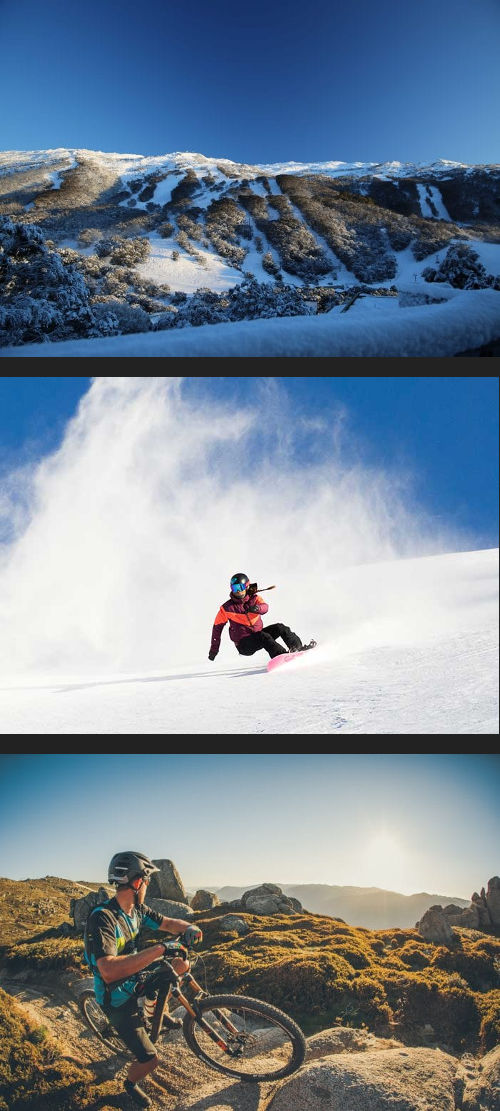
Australia Ski Resort
Thredbo is Australia’s best ski resort and year-round mountain destination, open 365 days a year. It was one of the first resorts in the world to reopen for skiing in the aftermath of Covid-19. World Ski Awards talks to Thredbo’s Marketing Manager, Caroline Brauer, about how the resort Down Under is coping.
WSA: As a southern hemisphere resort recently opened for its ski season, Thredbo offers an excellent insight into how ski resorts in Europe and North America will operate when they reopen for winter. What is the current status in Thredbo?
CB: Thredbo opened on 22 June 2020 under a revised operating model that was developed under the advice of the State Health Department and the State and Federal Governments. The model includes social distancing, hygiene and sanitisation measures to give our guests, staff and the community peace of mind that we are doing all we can to provide a COVID safe environment.
WSA: Describe life in the resort during lockdown?
CB: Thredbo’s summer operations including the Thredbo Mountain Bike Park needed to close early during the season and when the Government initiated the travel ban, the Thredbo Village was inhabited by residents only. For local businesses this was a significant impact after having the resort already forced to shut down for 14 days due to the bushfires back in January during the peak summer trade period.
As the winter season came closer and closer as Australia went into lock-down, the resort faced significant operational challenges. A variety of models were developed based on a range of scenarios.
WSA: What changes this winter can visitors to Thredbo expect?
CB: Thredbo is rolling out a revised operating model including a range of social distancing, hygiene and sanitisation measures. We’re limiting the number of skiers and snowboarders on the hill each day, we have lift line spacing measures and limits on how many people can ride lifts together. A full rundown of measure can be viewed on the Thredbo website.
WSA: As one of the first ski resorts in the world to open after lockdown, what advice from your experiences would you offer to other resorts?
CB: Thredbo Resort has gone to great lengths to deliver a robust COVID Safe Operating Plan, to give our guests, our staff and our community the peace of mind they need in this climate. This allowed for a smooth and successful opening of the snow season this week. Being the first resort to re-open in Australia, we had significant attention from regulatory authorities and media. The authorities and the media both reported positively that Thredbo had gone above and beyond in providing an environment where social distancing, hygiene and sanitisation were delivered. We recommend taking this proactive approach and being well prepared to manage the various COVID requirements.
WSA: What do you think the ski tourism industry will look like after Coronavirus?
CB: The ski tourism industry is adept at dealing with change – we are a strong, adaptable and resilient community and we believe this puts us in a strong position to quickly bounce back from this. The prediction that domestic tourism, in particular luxury, as well as adventure travel will perform strongly over the next 12 months puts a year-round resort like Thredbo in a solid position.
WSA: What trends in ski tourism do you see emerging as a result of the crisis?
CB: Due to the Australian resorts limiting capacity as a social distancing measure, interest in backcountry touring has been high and this is a trend we see could emerge strongly as a result of the crisis. Thredbo offers a backcountry pass which has seen solid sell-through, and reports of backcountry retailers selling through products like split boards and touring skis further supports this.
WSA: Why will collaboration across the ski industry be the key to navigating the post-virus landscape?
CB: Thredbo worked collaboratively with all snow industry partners including competitor Australian snow resorts to develop our COVID Safe Operating Plan for winter 2020. This has been a unique, yet beneficial experience that has strengthened the relationships between the resorts when it comes to issues that affect the industry as a whole.
WSA: Ski businesses across the world will have to work harder to attract guests as the market recovers. What methods are you using to attract visitors back?
CB: Demand has continued to be healthy for Thredbo Resort. When our Online Shop opened for lift pass sales, we have three times the demand we had expected. The timing of our lift pass release aligned with the easing of travel restrictions after months of lockdown.
Given the demand currently outweighs supply of lift passes (based on the restricted capacity of our COVID Safe Operating Plan), we have cut down on any demand-generating marketing activity. Instead, being such an uncertain climate, we are focussing on a customer-centric strategy and are committed to providing consistent, clear and transparent communication to provide all our guests with the reassurance they require.
WSA: Have there been any changes in your own outlook that you see as a positive reaction to the crisis?
CB: The crisis has been a welcome reminder for most to slow down, re-evaluate their priorities and identify what is important to them. I feel that as restrictions continue to ease, this will convert to positive results for the adventure tourism industry as people opt for holidays with wide open spaces and a shift back to a renewed appreciation for our environment.

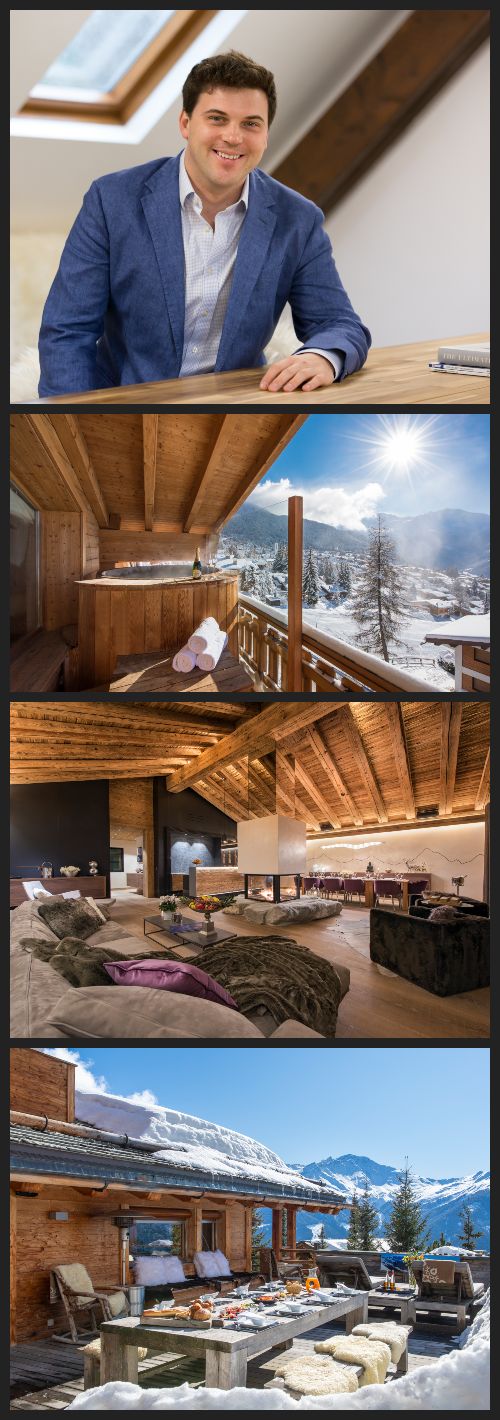
Switzerland/UK Ski Travel Agent
Oliver Corkhill is the CEO of Leo Trippi, the luxury travel agency established in 1882, specialising in ski holidays and mountain experiences.
WSA: What is the current status of operations at Leo Trippi? And how was the lockdown experience for you and your team?
OC: Our whole team kept working throughout the pandemic from home and whilst we had a quiet couple of months in terms of bookings we were able to get ahead on future developments, ensuring that we are coming out the other side of this stronger. Things are starting to pick up in terms of bookings and our office is now open again with the team coming in to the office on a rota system. Whilst it’s not a situation anyone would ever wish or imagine being in, we are trying to turn it into a positive, the team spirit has never been stronger and we’re making real progress as a business.
WSA: What changes in the way you operate the business are you having to implement in the aftermath of Covid?
OC: We are working hard with chalet operators and owners to provide more flexible cancellation policies so that clients are not out of pocket should there be a second wave. We have actually just introduced a flexible cancellation collection of chalets on our website in the hope that this will allow people to book with more confidence, as well as encouraging other owners and operators to follow suit and do right by customers.
WSA: What trends in the luxury ski sector do you see emerging as a result of Covid?
OC: We are definitely seeing an increased interest in more long-term rentals – I think the thought of isolating in the mountains and renting a property where other people are not coming and going so much is extremely appealing to our clients. We are also aware that we need to be more flexible to client’s requests, be that the number of staff in the chalet or additional cleaning, although as our business is tailored to each client, this is not out of the ordinary for us.
WSA: With many people curtailing their summer holidays, could this lead to a surge in bookings for winter holidays, and ski in particular?
OC: We hope so! People are eager to get away but are still nervous about going on holiday. This is why we are pushing chalets with flexible cancellation policies so that clients have peace of mind when booking.
WSA: Why do you think collaboration across the ski industry is the key to navigating the post-crisis landscape?
OC: Travel agencies, tour operators, experience providers and other suppliers all need to rally together to have a consistent and flexible approach to helping customers. There has to be collaboration in order to take care of our guests – if the industry is providing consistent, guest-friendly communication then the confidence to book will grow.
WSA: What advice from your own experiences would you offer to other ski travel agencies?
OC: Keep momentum up as best as you can. We all go through highs and lows but the ski / mountain tourism industry is resilient and will bounce back. Use the time wisely to keep progressing and moving forward towards goals. The landscape will be more competitive after this in the sense that customers will expect even greater levels of service and care – be ready.
WSA: Have there been any changes in your own outlook that you see as a positive reaction to the crisis?
OC: Sometimes being forced to slow down in certain areas allows us to take stock of where we are and address areas of business and personal life that have been a bit neglected. We’re focused on a small number of objectives at Leo Trippi and making consistent progress towards reaching those, we’ve had time to do this properly and really hit the #restart button.

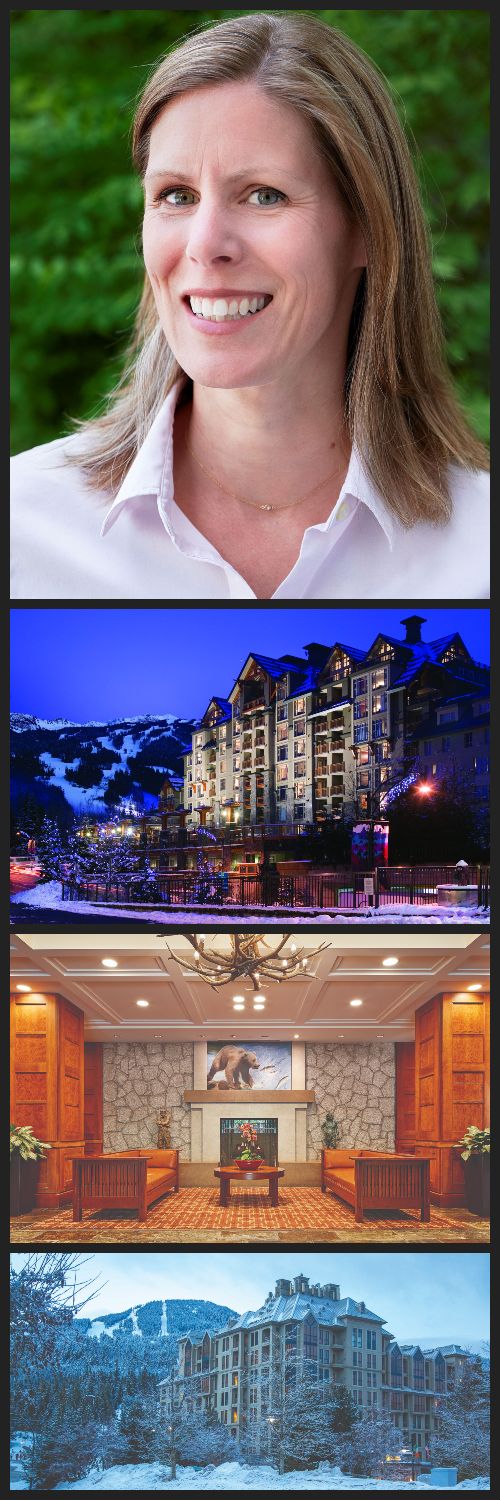
Canada Hotel
Pan Pacific operates two flagship hotels in Whistler: Pan Pacific Whistler Mountainside and Pan Pacific Whistler Village Centre. World Ski Awards talks to the General Manager of both properties, Julie Lanteigne, about her approaches to handling the pandemic.
WSA: Pan Pacific Whistler Mountainside and Pan Pacific Whistler Village Centre are now open after lockdown. What adaptions have you had to make in order to operate this summer? And what are you plans for the winter season?
JL: Since we first felt the effects of Covid-19, the safety and well-being of our guests, associates and our community was, and still remains, our top priority. It became clear we needed to adapt to a new normal in hospitality and we immediately did so prior to reopening both hotels. While we implemented enhanced cleaning and disinfection policies and procedures, we have also made adjustments to some of our amenities and guest interactions, ensuring that physical distancing measures and other safety precautions are in place.
Some of these new protocols include continental breakfast delivery at our Village Centre location, in place of our complimentary breakfast buffet; a new touchless check-in experience; and changes to our cancellation policy to allow greater flexibility for our guests. We have been following the recommendations of our local health authorities closely and will continue to do so as we head into the winter season, making further adjustments to our protocols where needed.
WSA: Describe what life was like in Whistler during lockdown?
JL: In March, we experienced the fastest deceleration of the winter season that I had ever seen during my time in Whistler. As businesses were forced to take pause, with signs notifying the small few who happened by of ‘temporary’ closures, the resort emptied as travellers and locals alike stayed home. The community leaned on each other for kindness, support and connection in whatever way we could find it. Many likened it to the shoulder season of ‘old’ as locals became reacquainted with all things wonderful about Whistler. Finally, as the lockdown eased, the village buzz returned and we, as a community, began to ready for re-opening.
WSA: What trends in the ski hospitality sector do you see emerging as a result of Covid-19?
JL: We have already witnessed a number of trends emerge within the industry as a result of Covid-19. With international travel restrictions in place, we of course have seen a substantial shift to domestic travel. The duration of a guest visit has also increased significantly as visitors feel more comfortable in one destination as opposed to venturing to a few different spots in one vacation. Furthermore, travellers continue to crave flexibility and the ease of knowing that they can attain a refund should further pandemic-related limitations be put in place.
WSA: Why do you think collaboration across the ski industry is the key to tackling the post-crisis landscape?
JL: A uniform response is needed to re-build trust in travel and a more streamlined and consistent consumer experience. We need our guests to feel safe and to know that all businesses within the community they visit – whether they be hotels, restaurants, shops, adventure providers etc. – are committed to protecting their well-being. Collectively, businesses across Whistler have demonstrated their ability to safely welcome visitors. And from welcoming guests to both of our Pan Pacific Whistler properties, we have heard first-hand how reassured they feel, understanding that the community is as equally committed to ensuring their safety as we are.
WSA: What advice from your own experiences would you offer to other hotels?
JL: During such a challenging time, communication and engagement remain key. Having an open dialogue and remaining transparent with guests, associates, and stakeholders alike has been fundamental for us to alleviate concerns and push forward. Do what you say you will do, and where possible, go one step further.
WSA: Have there been any changes in your own outlook that you see as a positive reaction to the crisis?
JL: Slowing down the pace of life certainly forced us all to see and experience things from a new perspective. Whether it be realigning career priorities, finances, or a renewed focus on health and wellbeing. Additionally, for me, it has highlighted the importance and value of time, particularly, time spent with the people closest to you, which is invaluable.
Pan Pacific Whistler Mountainside: www.panpacific.com/ppwhi
Pan Pacific Whistler Village Centre: www.panpacific.com/ppwhv


Australia Chalet
Shannon Exelby has been a leader and innovator in the tourism industry for two decades, managing some of Australia’s most iconic hotels and resorts. As the General Manager of Astra Falls Creek, in Australia’s Victorian Alps, he shares his experiences of lockdown and the challenges of the 2020 winter.
WSA: What is the current status of operations at Astra Falls Creek? What adaptions have you had to make in order to operate this ski season?
SE: Astra Falls Creek, being part of the Victorian Alpine Community, opened early July after a sequence of delays. Just four days into operation lifts closed and Stage 3 and 4 restrictions soon followed for Victoria. We were so ecstatic to get the go ahead to open the season, but the euphoria quickly subsided when the restrictions came back in so swiftly.
Astra Falls Creek has been closed in line with restrictions and we now have no option but to plan towards 2021 and making it a comeback season to remember.
WSA: Describe what life was like in Falls Creek during lockdown?
SE: Being in lockdown in Falls Creek is a world away from the stark nature of the shutdowns and curfews imposed on the Melbourne Metropolitan area. We have been relatively sheltered from Covid-19 in this part of the state, with our restrictions less severe. While it has been disappointing not to welcome our usual guest numbers, the local community has been able to at least enjoy some of the lifestyle we have come to take for granted up here. We have mountains, valleys and streams and while the rest of the world has changed this year, those spectacular views have remained as pristine as ever.
There is a strong hospitality influence, so there were sourdoughs and pastries being dropped at each other’s doorways, as we carried on as a local group.
We have an established community that has worked together and supported each other, exchanging ideas and sharing information.
WSA: What trends in the ski hospitality sector do you see emerging as a result of Covid-19?
SE: We found some real efficiencies through technology in what we trialled this year. QR codes for menus, ordering and online booking portals. 2020 has been a real testing ground for new technology in the hospitality field, so we can expect that to only improve and see investment and foresee these efficiencies providing more staff time for hosting and servicing our guests.
There was a period of cleaning house and looking into every cost line to get through those periods of closures. No doubt we will emerge through this with more efficient and effective business models. We spent a lot of time with our staff training and innovating service additions in managing our Safe Operating Plans and hygiene requirements for Covid-19.
The season has certainly brought our staff network and community closer together. That will support our culture and add real value to the guest experiences next year.
WSA: How does the Covid-19 crisis compare to other global shocks you have faced during your career?
SE: I don’t think hospitality has ever experienced a forced global shut down of this nature. The word unprecedented has been used a lot in 2020 and most certainly, there has been nothing to match this in my hospitality career.
I was working in high-end venues and hotels during the global financial crisis, when we saw numerous big chains fall over. Individuals and businesses tightened their belts, particularly with discretionary spending and the effects of the GFC lasted a number of years.
Covid-19 will most likely surpass those challenges and in the short term, the challenge for hospitality and tourism sectors will be to gain a greater share of the domestic market.
There has been a few years, due to International security, where we registered spikes in domestic stay at home travel.
The year (or years) ahead will be a frontier for domestic travel and we will need to dial up and pivot some of the home experiences to appeal to the local market. Make a compelling case as to why Astra Falls Creek is the right option for travellers.
There will need to be some review of the cliché-type experiences that were being served up to international visitors and the creation of improved, creative and authentic ways to impress the Aussie stay-at-home traveller.
WSA: Why do you think collaboration across the ski industry is the key to tackling the post-crisis landscape?
SE: There have been some inspiring outcomes for ski resorts in Australia with Perisher and Thredbo about to see out the first safe and successful full ski season following the Northern Hemisphere closure at the onset of Covid-19. Pre-season, the Australian ski resorts and lift operators (including Victoria) were working collaboratively with government on a single Management plan that would see the ski resorts prevail. There have been some businesses hit hard by the closures and reduced visitation, so a combined message and collective approach will only optimise our ability to bounce back in 2021.
WSA: What advice from your own experiences would you offer to other boutique hotels?
SE: Hang in there! 2020 has been an awful time. Having a full book of guests and managing their disappointment through the ever-changing landscape of restrictions and closures was pretty ugly for operators and our guests. It is important to “Stay Connected” with our customers, so we are sending out old-fashioned hand-written cards by mail, in addition to our welcome chocolates that guests would usually receive on check-in. It’s a nice way of saying we’re still here and we look forward to seeing you next year and giving them a taste of Astra-level service, be it only a specialty chocy from our friends at Hey Tiger.
WSA: Have there been any changes in your own outlook that you see as a positive reaction to the crisis?
SE: There have been some amazing and insightful interviews conducted of late from business leaders in the midst of Covid-19 which has prompted some personal reflection. I particularly liked Sam Mostyn’s response where she talked about redefining purpose, truly inclusive and incisive leadership, looking beyond the norm, reconnecting with what really matters and rewriting both personal and business goals and objectives. We have also really enjoyed having the kids around for the home schooling – that’s a box I wouldn’t have thought this time last year I would tick, but we have spent the extra time together and been able to slow down and enjoy family life.


Switzerland Hotel
Voted ‘World’s Best Ski Hotel 2019’, W Verbier mixes contemporary urban design with an alpine touch, and offers immediate access to over 400 km of skiing and hiking terrain. World Ski Awards talks to the General Manager of W Verbier, Pierre-Henri Bovsovers about his take on the pandemic.
WSA: You are now open after lockdown. What adaptions have you had to make in order to operate this summer? And what are you plans for the winter season?
PHB: We have followed and implemented all the hygiene rules communicated by the Swiss Confederation and Marriott Int. Signage throughout our hotels to remind guests to maintain social distancing, occupancy limits, and seating capacities reductions in our restaurants, spa and fitness, in compliance with local and federal mandates, and partitions installed at front desk, concierge desk and Spa reception. Mobile check-in and key, service requests delivered via the Marriott Bonvoy™ mobile app.
Providing a safer environment for our guests and associates is a top priority.
Unfortunately, we don’t really know how the situation will evolve and what will happen this winter. A large part of our clientele comes from abroad. For now, we chose to elaborate our marketing and sales actions targeted on Switzerland and neighbouring countries.
We have seen that there has been a certain demand for very wealthy customers who request to rent an entire floor and we offer suitable products.
We will adapt our offers and services to the occupancy rate and the local regulations.
WSA: Describe life in Verbier during lockdown?
PHB: Since we were only in a partial confinement and we are living in a place surrounded by nature, we were able to practice some outdoor activities, such as skinning and snowshoeing in winter, and cycling and hiking in spring.
WSA: What trends in ski hospitality do you see emerging as a result of the crisis?
PHB: We have a very limited view on the new trends.
WSA: Why will collaboration across the ski industry be the key to navigating the post-virus landscape?
PHB: It would be helpful to have a harmonization of the hygiene rules, at least in the European ski resorts – everyone would be equal. We can also learn from each other, and stimulate the ski market all together.
WSA: As one of the world’s leading ski hotels, what advice from your experiences would you offer to other hotels?
PHB: Despite the current climate, we are trying to maintain a positive attitude and we will do even more effort to stimulate demand.
WSA: Have there been any changes in your own outlook that you see as a positive reaction to the crisis?
PHB: Personally, it didn't change anything for me, but from what I could observe, it allowed a lot of people to put things into perspective and keep in mind what is important.


United Kingdom Ski Travel Agent
Andy Castle is the Founder and Director of Ski In Luxury, the UK-based ski agency that specialises in sourcing luxury chalets in France, Switzerland, Austria and Italy.
WSA: What is the current status of operations at Ski In Luxury?
AC: Things are definitely looking a lot more positive in all aspects of our business and industry. We have seen a big surge in enquiries and bookings now that lockdown restrictions are being eased and therefore, over the past four weeks, we have welcomed back from furlough a couple more members of the sales team and also our social media and digital marketing executive.
WSA: How was life under lockdown for you and the team?
AC: We were well prepared for lockdown. Fran could foresee there would be some issues with office working and took measures early on to ensure that the team were ready for the inevitable news that we would need to stay at home and isolate.
Personally, for us it brought a number of challenges at first. My wife, Fran, and I have two young girls of five and six years. It was a struggle to find the time to sit together and work out a plan of action when we had the responsibility of home schooling but we pushed ourselves to find the time. There were some very important decisions that we had to make to ensure the continued smooth operation of the company.
At first we had the full team working remotely and everyone adapted well to working from home. Great communication and efforts to organise and delegate the day-to-day operational tasks of the business and various role duties. However, when the government introduced the Coronavirus Job Retention Scheme, half of the team went on furlough and we kept on a core sales team to handle any enquiries and deal with holiday cancellations, and the IT team to continue our plans on further development of our websites and back office systems.
We kept the furloughed team in the loop with ‘The Weekly Furloughgraph’ newsletter which included updates on our IT developments, sales and accounts updates. We threw in some laughs too with weekly jokes and achievements. We offered the opportunity for the team to take part in training challenges and sessions. They have been generating fun and interactive training sessions across Zoom or by email with ski resort and product quizzes and crosswords.
WSA: How do you think the ski tourism industry will look after Coronavirus?
AC: It’s difficult to say. There are a number of enquiries and bookings coming in for the summer months in the Alps, as well as next ski season with many people seeking escapism and a bit of tranquillity in their lives. Things are definitely looking on the up. However, unless there is a significant increase in bookings for some operators, there may well be some who consider postponing their operation by a year as there would be little point in running the business at a loss for a year, putting themselves at more financial risk than they have now. There will be others that are facing a financial struggle in the coming months.
Skiers are loyal to the mountains. They will put their heart and soul into generating the money to take their annual ski holiday. They will be crying out to breathe in the fresh mountain air. I am confident that the ski holiday industry will recover, and it will do so quickly. Operators are doing a great job by putting in place very favourable terms to encourage people to book and to provide additional security and peace of mind should there be any second wave of the epidemic.
We have seen an increase in demand for longer term rentals of three weeks or more, both in the summer and winter, including seasonal rental enquiries. We will possibly see an increase for apartment and chalet rentals from those skiers that usually book a hotel in order to ensure adequate social distancing.
Ski resorts will change the way in which they operate. They will have to in order to ensure social distancing regulations are met and to ensure people feel comfortable and safe in the environment. It’s going to be strange, that’s undeniable. However, the most important thing is that we will still have the mountains available to play on.
WSA: With many people curtailing their summer holidays, do you think this will lead to a surge in bookings for winter holidays, and ski in particular?
AC: Yes, I believe it will. People are desperate for holidays having been in lockdown for so long. If they are unable to travel to their usual beach or summer destination due to travel restrictions, there is definitely a great chance that people will consider trying to ski. There will be those that have sat throughout lockdown, making lists of things they should have done or want to do in their lives. Skiing will undoubtedly be on many bucket lists.
WSA: You are adding a number of new properties to your portfolio for next winter. What is the strategy behind this?
AC: We always look to maintain our position as the leading luxury chalet rental agency, and we do this by ensuring that our websites are kept up to date with the latest information and the addition of the latest rental properties to the ski industry that meet or exceed our criteria for inclusion.
In order to do this, we are constantly updating and improving our portfolio of properties. Each and every season there are a significant number of chalets that change operator hands, and new properties that come onto the rental market, and indeed, properties that are no longer available. This coming season there are likely to be a number of chalet owners that will look to keep their property for personal use throughout the season due to potential risks of contraction.
WSA: What advice from your own experiences would you offer to other ski operators?
AC: Don’t panic. I spent the first few weeks of lockdown worrying about the future of the industry and how our business would be affected. At the end of the day, it is out of our hands and worrying about it will only reduce your ability to rationalise and make sensible, educated business decisions.
Speak and share experiences with those within the ski industry – even your competitors. We are all in this together and can help and work alongside of one another to ensure that we all come out the other end and that the industry remains strong.
WSA: Have there been any changes in your own outlook that you see as a positive reaction to the crisis?
AC: The easiest thing to forget when you are constantly involved in work, is that getting a work/life balance is key to both happiness and mental health. We were forced to take a step back in the business, and to focus on schooling our girls and keeping them entertained, and with a healthy mind and soul during lockdown. It took some time to relax into it but now it is second nature and Fran and I have very much enjoyed spending our time at home.
Our girls are back at school now and it has freed us up to get stuck back into work but at the same time, we are taking this opportunity to spend more time enjoying each other’s company, doing things that we used to love doing together before kids and the demands of the business took a solid grip on us, like bike rides and walks down the beach. We are stronger in our minds, and we are healthier and fitter than we have been in a number of years. We are ready to take on whatever challenges are thrown our way both from a personal and commercial perspective… although ideally we would definitely like to see the back of Covid-19!

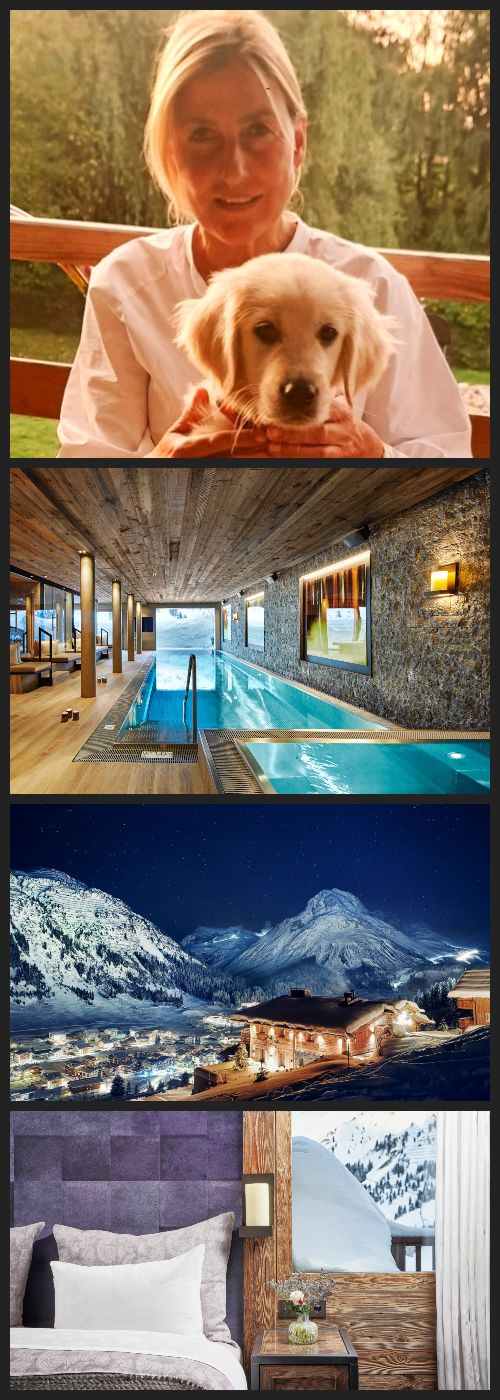
Austria Chalet
Fiona Kriegeris is Chalet Manager of Chalet 1551 in the exclusive mountain village of Lech am Arlberg, Austria.
WSA: Describe life in Lech during lockdown.
FK: With all the challenges of recent times, one thing was easy for us – to be confident. Lech and its travel industry has been thinking a lot, but with the focus on positive thoughts, a positive development. Considering this we were able to embrace the future. In the midst of our work, the lockdown came like a flash from the blue, it forced us to define and implement the right decisions. ‘How will the next winter be? Can a vacation be spent safely?’
WSA: What trends in the ski hospitality sector do you see emerging as a result of Covid-19?
FK: Taking into the account the above question, it is of the utmost importance to make a ski vacation as safe as possible. The privacy of a chalet will be preferred to a hotel stay. The trend will be to prefer prudence to sociability.
WSA: Why do you think collaboration across the ski industry is the key to tackling the post-crisis landscape?
FK: Pulling together, learning from one another and more by doing so – true to this guiding principle, we will encourage travellers to continue travelling to all of our beautiful and safe destinations. We have to pull together or we will fall apart. We have to do more than just comply with legal requirements. We share a great responsibility. For all of us.
WSA: What adaptions is Chalet 1551 making ahead of the winter season?
FK: All possible safety precautions are made. Furthermore we promote a safe transport and rides for our guests. We are proud to offer rides with our own snowmobile and Range Rover. There is no need for public life apart from using the lifts. We take care of our guests. Our Michelin star chefs pamper our guests around the clock and our concierge service will take care of every single concern. These are special times, our thinking and feelings have changed. We are there for our guests.
WSA: What advice from your own experiences would you offer to other chalets?
FK: The personal, warm connection to our guests and colleagues is important. Stand by your team, take responsibility – humanity and caring are the most important principles. Success will come.
WSA: Have there been any changes in your own outlook that you see as a positive reaction to the crisis?
FK: Staying true to this matter and facing the situation is important. But this maybe should always be the attitude when loving what you do. Passion requires loyalty, and sometimes resilience.

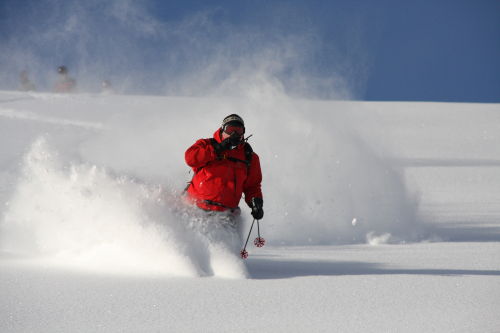
Canada Heli-skiing
Located near Terrace in the remote northwest corner of British Columbia, Canada, Northern Escape Heli Skiing offers small groups heli-skiing in the spectacular Skeena mountains. World Ski Awards puts the questions to General Manager, John Forrest.
WSA: Heli-skiing offers the ultimate in get-away-from-it experiences, thereby sidestepping the social distancing challenges faced by large ski resorts and hotels. Nevertheless what will you need to adapt your business so that you can operate next winter season?
JF: While it is true that smaller boutique type resorts such as ourselves offer a much more exclusive experience with far fewer people to interact with, social distancing will still be a risk management principal that we employ. It Canada and in BC it is expected that Social Distancing will be with us for some time and likely through the 2021 Ski Season.
Proper personal hygiene will be stressed with our guests and staff, as well as new and heightened cleaning and sanitizing procedures will be implemented. Additionally, when closer than 2 meters, such as when in a Helicopter or Snowcat, our guests and staff will be required to wear a mask which in this case could be as simple as a ski buff.
WSA: Covid-19 restrictions were implemented in Canada a month before the end of your season. How did things pan out?
JF: For the safety of our guests and staff we ended our season March 16th, 4 weeks early due to the pandemic. It was a difficult decision, but very obviously it was the right decision at the right time. For the most part our guests were very understanding and the majority of them have rebooked for our 2021 season.
WSA: With so many factors beyond your control – from airlines to changing government legislation – what’s your approach to navigating the storm?
JF: There are still 6 months to go before our season starts and with the current speed of change we have pushed the pause button until things become more clear. We have delayed our Summer Lodge Grand Opening till Summer 2021and will look forward to welcoming guests to an exclusive mountain experience at that time. Our winter 2021 season is being retooled to meet the newest Covid-19 precautions and is planned to continue as scheduled.
WSA: How do you think the ski tourism industry will look after Coronavirus?
JF: In the near-term future, resort skiing will likely take a hit and much change will be required to operate in a safe manner. I believe we will see demand increase for smaller boutique operations where families and “Travel Bubbles” can book the entire lodge.
WSA: What trends in the ski tourism sector do you see emerging as a result of Covid-19?
JF: We are seeing an uptake in bookings for smaller boutique experiences which can more easily meet the social distancing requirements naturally. Exclusive Lodge bookings and small groups is what we offer and these naturally meet much of the prescribed Covid-19 precautions.
WSA: Why do you think collaboration across the ski industry is the key to tackling the post-crisis landscape?
JF: We are all in this together. As an industry we want to demonstrate that is safe and still fun to go skiing.
WSA: What advice from your own experiences would you offer to other heli-ski operators?
JF: Be prepared for the unexpected.
WSA: Have there been any changes in your own outlook that you see as a positive reaction to the crisis?
JF: Once again I have been forced to rethink and retool our programs. In doing so I believe we will offer a better product and become more resilient.

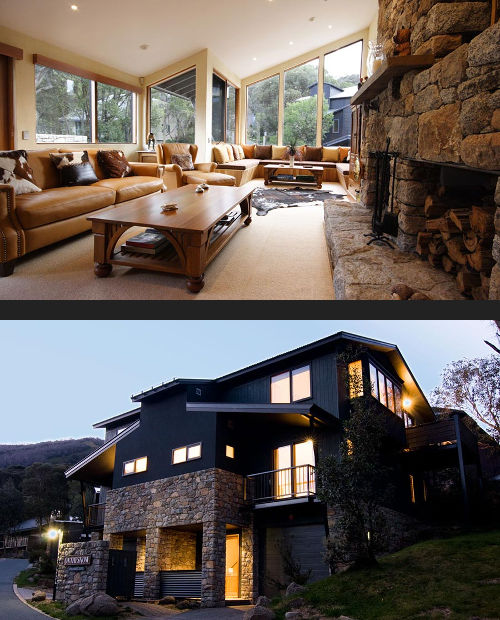
Australia Accommodation Provider
Gregg Quinn is the General Manager of Ski In Ski Out Chalets Thredbo, which manages slopeside luxury accommodations in Thredbo, in the heart of Australia’s Snowy Mountains.
WSA: As a southern hemisphere resort recently opened for its ski season, Thredbo, Australia offers an excellent insight into how ski resorts in Europe and North America will operate when they reopen for winter. What is the current status in Thredbo?
GQ: Thredbo opened on 22 June 2020 under a revised operating model that was developed under the advice of the State Health Department and the State and Federal Governments. The model includes social distancing, hygiene and sanitisation measures to give our guests, staff and the community peace of mind that we are doing all we can to provide a COVID safe environment.
WSA: Describe life in the resort during lockdown?
GQ: Life was interesting. Our schools were in lockdown and our children moved onto virtual schooling. The local schools did an amazing job of teaching in a new way. The schools are small and nimble and the children adapted.
The local ski community were the same. We are all used to and are all skilful at making changes to operate on a daily basis.
WSA: What changes can we expect now Ski In Ski Out Chalets Thredbo has opened? And what changes in the resort?
GQ: Ski in Ski Out Chalets are very lucky. We offer self-contained on snow accommodation without any common areas, so the changes for the guests are minimal. We have changed our check in procedures and our cleaning processes, but the guest experience is still what we are striving for. The feedback so far has been excellent.
We also developed a guest APP as we needed a new way to deliver information to guests whom are in house. This included their personalised compendium for operating the television etc and the ability to order takeaway meals and pay for these online.
Our virtual butler Jean-Pierre is here to assist.
WSA: What do you think the ski tourism industry will look like after Coronavirus?
GQ: I think that at this stage is a wait and see. Things are changing on a daily basis. The industry will survive and be stronger and we all need to continue to stick together
WSA: What trends in ski tourism do you see emerging as a result of the crisis?
GQ: I think the trends we see for this year will only be temporary.
WSA: As one of the first chalets to open after lockdown, what advice from your experiences would you offer to other chalets? And other ski resorts?
GQ: The changed requirements for purchasing lift tickets has been a challenge for the resorts and the industry. I think you need to make sure your IT systems can handle the increased loads of activity and find alternative solutions to satisfy guests. I also feel more communication is critical.
WSA: Ski businesses across the world will have to work harder to attract guests as the market recovers. What methods are you using to attract visitors back?
GQ: Interestingly, the appetite for snow is huge. We will have a record year this winter with guests visiting our chalets even though the resort can only operate at a 50% capacity. There is also a huge local appetite to ‘just get out’. With border restrictions and stadium closures to the general public, the snow is an incredible attraction.
WSA: Have there been any changes in your own outlook that you see as a positive reaction to the crisis?
GQ: There was a great enjoyment in slowing down for a few months. Our family connected more as the children were also working from home but also doing home-based activities. Always onward and upwards.


Italy Hotel
Italy was one of the first nations to be locked down due to Covid-19. But its hospitality sector is now re-emerging strongly from the crisis. World Ski Awards talks to Carmelo Lentini, General Manager of Cristallo, a Luxury Collection Resort & Spa, Cortina d’Ampezzo, about his approach to tackling the crisis.
WSA: Cristallo, a Luxury Collection Resort & Spa, Cortina d’Ampezzo is now open after lockdown. What adaptions have you had to make in order to operate this summer? And what are you plans for the winter season?
CL: For sanitizing the hotel areas, we are using certified products recommended by the Marriott Commitment to Clean Program. All hotel spaces have been reorganized to comply with the social distancing rules and we have installed hand-sanitizing stations in all common areas. Furthermore, signage has been set to assist guests with the behaviour to adopt.
Our staff adopts personal protective equipment based on the activity they are performing, thus respecting safety measures. Guests are requested to wear personal face mask in all the common areas in the hotel.
We support the use of contactless services, which the Marriot Bonvoy Members can use through Marriott Bonvoy App.
For the winter season we are going to adopt the same procedures, updating them according to the governmental rules and regulations of the time.
WSA: Describe what life was like in Cortina d’Ampezzo during lockdown?
CL: Cortina d’Ampezzo has been the most beautiful place to spend the lockdown: there was no one around, the only sound was the chirping of the birds, like the nature has taken its spaces back for a while.
WSA: With so many factors beyond your control – from airlines to changing government legislation – what’s your approach to navigating the storm?
CL: Our approach aims to improve our presence in all the markets available to travel, offering the same service and the same quality as always.
WSA: What trends in the ski hospitality sector do you see emerging as a result of Covid-19?
CL: Safety has always been an implicit need, but now it will become the number one priority. We and all the destination stakeholders have invested to ensure a safe vacation.
WSA: Why do you think collaboration across the ski industry is the key to tackling the post-crisis landscape?
CL: Collaboration is always essential, now more than ever. Collaborating with the local community spreads a cohesive image of what we are, and allow us to give a higher quality of service. Working together for one goal will tackle the post-crisis situation.
WSA: What advice from your own experiences would you offer to other hotels?
CL: We have to read the signals of the present in order to understand the future and act accordingly.
WSA: Have there been any changes in your own outlook that you see as a positive reaction to the crisis?
CL: After such a crisis, collaboration between all the destination stakeholders has become stronger than ever, and our proactive attitude has led to a positive message for anyone looking at the destination.

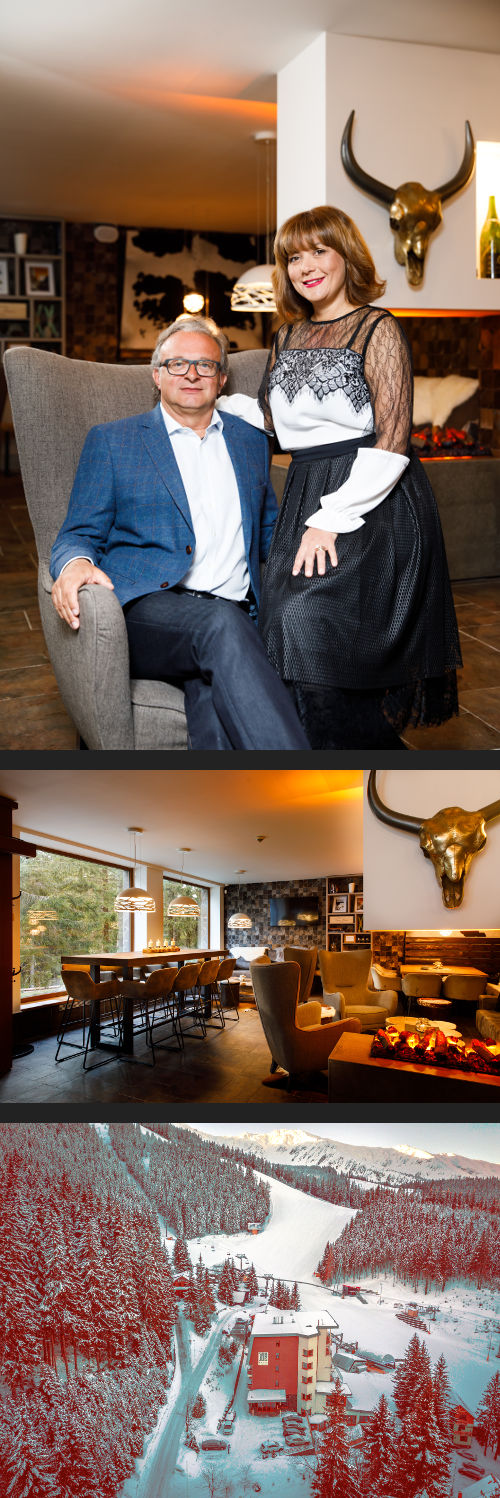
Sovakia Hotel
Hotel FIS Jasná**** is located in the Slovakia’s Low Tatras Mountains, and offers upscale ski-in/ski-out accommodation adjacent to the slopes of Jasná. Manager Lucia Švecová discusses her experiences following the outbreak of Covid-19.
WSA: What is the current status of operations at Hotel FIS Jasná****?
LS: We are currently reopening the hotel. Both the hotel and ski resort were closed from 13th March. The reservations are coming for the summer, as well as for a winter season. But the restart is very slow.
WSA: Covid-19 restrictions were implemented across Europe towards the end of your winter season. How did this affect your hotel?
LS: The ski resort closed on 13th March. All our reservations were cancelled and we had to close hotel as well. Clients could not come even for the last weekend from 13th March because the borders were closed and there was no reason to come without the ski lifts being in operation.
WSA: Describe life in Jasná during lockdown?
LS: Life was very quiet and peaceful. We had a lot of snow and very nice sunny weather. It was a big pity because the end of the season and Easter holidays could have been really fantastic.
WSA: How are you adapting Hotel FIS Jasná**** so that you operate this summer season? And for the winter ski season?
LS: Our hotel can open now with only minor restrictions. We are paying a lot of attention to ensure our guests feel safe and secure in our hotel. We have implemented many new procedures regarding social distancing and providing more disinfection of all spaces and hotel rooms. For summer and winter season we have prepared packages for stays and we have changed our cancellation policy for summer season to no strict policy: 7 days prior to arrival without cancellation costs, and for less than 7 days the stay will be postponed.
WSA: With so many factors beyond your control – from airlines to changing government legislation – what’s your approach to navigating the storm?
LS: It is fairly difficult to navigate the Slovak laws and legislation especially now that everyday some new regulations are implemented. At times, it may be frustrating that government imposes regulations without thinking about the consequences to businesses and operations and without the advice from the people working in hotel and gastronomy industry.
WSA: How do you think the ski tourism industry will look after Coronavirus?
LS: I hope we will have a nice winter season, but I think it will not be the same as previous years, because people will be more cautious about being in big groups and with many people close together. As a boutique hotel with few guest rooms, I hope we will attract our customers.
WSA: What trends in the ski tourism sector do you see emerging as a result of Covid-19?
LS: I think there will be lot of changes starting with online check in, contactless opening of the doors, changing of the room design. Regarding skiing as a sport, I do not see any reasons for change. Skiing has been here with us for many years and it will stay many more years. Ski tourism, as all other tourist segments, has received a hit. We have never been so vulnerable as we have been now. The health and safety standards will be under the constant microscope, but it’s all for the best. We will adapt to the new trends whatever they may be and we will travel and ski again! I trust that ski tourism will be greater than ever and we will get through there turbulent times and meet again at World Ski Awards in Kitzbühel.
WSA: Why do you think collaboration across the ski industry is the key to tackling the post-crisis landscape?
LS: We have to stand together united in order to stay strong. I believe that we cannot tackle the challenges that are waiting for us without help from each other. It is crucial to share knowledge, information and ideas. I would refrain from the words crisis: I think crisis can be avoided by being responsible. If each one of us will support local hospitality and gastronomy, all can be avoided. It is easy – instead of having a coffee at home, support your local café by buying the coffee there. Instead of cooking everyday, go once a week for a dinner. Take your loved ones for a romantic stay in a hotel even if it is in the same city as your house, be pampered and support local businesses.
WSA: What advice from your own experiences would you offer to other hotels?
LS: Never give up.
WSA: Have there been any changes in your own outlook that you see as a positive reaction to the crisis?
LS: For me it was a time of self-reflection, time to calm a bit, to slow. But now we have to work hard to restart our business.

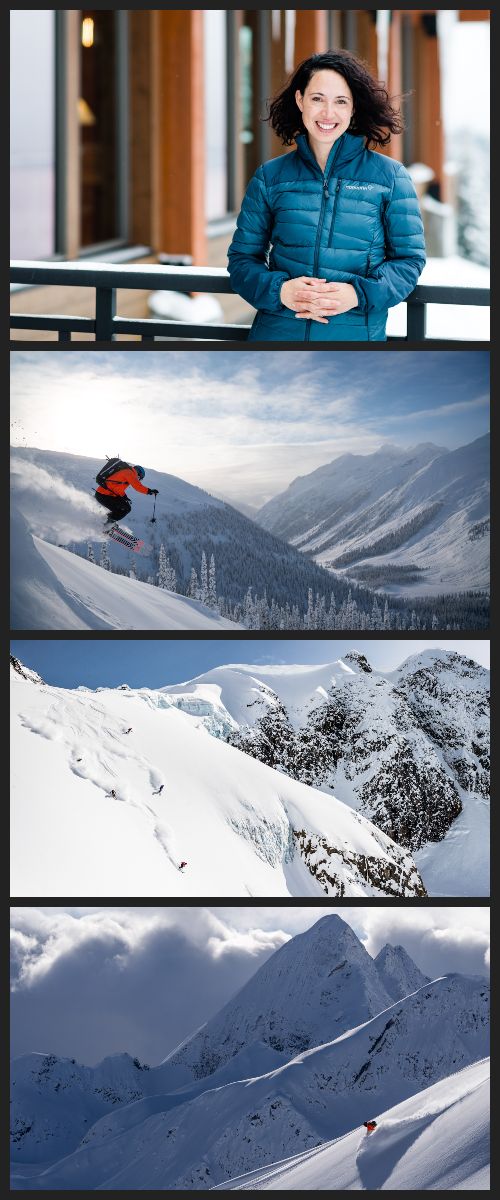
Canada Heli-skiing
MICA Heliskiing operates across five hundred square miles of jaw-dropping Rocky Mountain peaks, with eleven valleys of perfect tree-skiing and steep Alpine lines. World Ski Awards puts the questions to MICA Heliskiing CEO, Nicole Fricot.
WSA: Heli-skiing offers the ultimate in get-away-from-it experiences. Nevertheless, in what ways will you need to adapt your business so that you can operate next winter?
NF: The health and safety of our guests and staff has always been paramount to how we operate and it continues to be our top priority, as we get ready for this coming season. But Covid-19 has also changed everything. It has required us to review all of our policies and operations with fresh eyes.
As a remote private lodge, we are fortunate to be able to adapt quickly and communicate quickly and directly with our guests. We will be relying heavily on this ability over the next several months and our fortunate to have our team all enthusiastically on board.
WSA: Covid-19 restrictions were implemented in Canada before the end of your season. How did things pan out?
NF: We made the difficult decision to suspend our operations on 14 March. While it was incredibly disappointing to end our season early, the health and safety of our guests, our staff, and our communities are always our top priority. However, these extraordinary times also presented new opportunities and, with our eyes looking forward, we made the time now to review our current protocols and policies so that we can confidently offer our guests the same stress-free, relaxed and safe experience next season and beyond that they have come to expect at Mica.
I strongly feel the tourism sector will bounce back stronger than ever, with a whole new appreciation for being able to travel and experience new things. We are already seeing that is the case in our community of Revelstoke, BC which offers an immense amount of mountain summer experiences. Restaurants, tour operators, businesses have re-opened, with safe solutions.
WSA: With so many factors beyond your control – from airlines to changing government legislation – what’s your approach to navigating the storm?
NF: Be prepared to be flexible and ready to switch gears when needed. This year is going to be different than other years so it will have to be approached differently on every front. Also, hire a smart team and work together to meet the challenges. There are going to be innovative solutions to the challenges we are facing. If you have a good team you will be more prepared to grab solutions that are going to work when they arise.
WSA: What trends in the heli-ski sector do you see emerging as a result of COVID-19?
NF: People are going to continue to want to travel but they will pay even more attention to who they book with, how they travel and what you as a heli-ski provider are doing to keep them safe. Staff training, which is already exceptional high in our industry, will need to be even more in depth as a result of COVID-19.
WSA: Why do you think collaboration across the ski industry is the key to tackling the post-crisis landscape?
NF: Now, more than ever, I feel that it is important to share our ideas, learnings and knowledge industry wide. We offer a high-quality experience and feel our industry can be tourism leaders that are trusted in offering the highest levels of health, safety and fun for our staff and guests.
WSA: Have there been any changes in your own outlook that you see as a positive reaction to the crisis?
NF: At Mica, we are very fortunate to have a strong family-like atmosphere with our staff and guests. There has been a lot of connection and reaching out between guests and staff; sharing personal experiences or simply to check-in. It has been yet another reminder of how deep the connections and bonds go that are formed through mountains experiences.

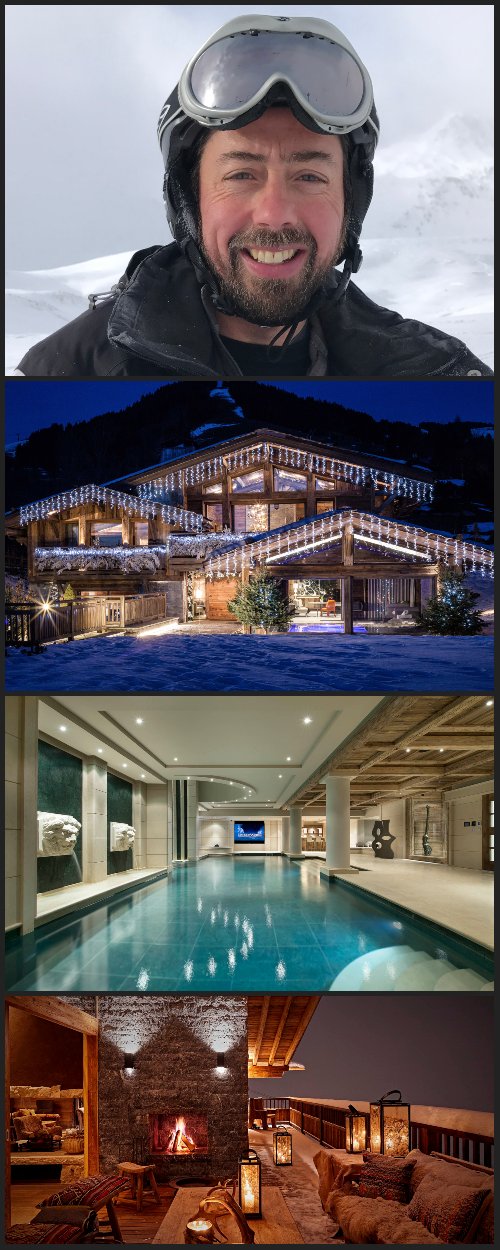
United Kingdom Ski Travel Agent
Firefly Collection is luxury travel specialist, showcasing a portfolio of exclusive luxury ski chalets and luxury villas from around the world. World Ski Awards talks to Tim Latimer, Founder & Director of Firefly Collection.
WSA: What is the current status of operations at Firefly Collection? And how was the lockdown experience for you and your team?
TL: We managed to carry on operating as normal throughout and our team has been back in the office since May. During lockdown the team worked from home. It’s good to be back in the office though as it feels more like a team when we are together.
Naturally new enquiries were significantly reduced but it did give us the opportunity to crack on with other projects.
WSA: What changes to the way you operate the business are you having to implement due to Covid-19?
TL: In terms of our operations, it’s now business as usual. We have plenty of space in the office so we can keep our distance with no issues. We have not been able to do property inspections this summer of course, but hope to get those up and running in autumn.
WSA: What trends in the luxury ski sector do you see emerging as a result of the pandemic?
TL: Many chalet operators are switching to a self-catered service rather than a fully-catered service as they don’t want to commit to high fixed costs of a large team of staff, staff accommodation and other overheads, when they may be facing last-minute cancellations due to travel restrictions.
Also, I suspect people will be waiting until the last minute to book as they don’t want to commit financially at an early stage and then lose out if they are unable to travel. Understandable, they will wait until much nearer the travel date.
Across the board we are seeing a major restructuring of the industry standard booking terms. Now, the first question clients ask is: ‘what is the Covid cancellation policy?”. If the terms are not more in the client’s favour, they simply won’t book.
WSA: In what ways will collaboration across the ski industry be essential to navigating the post-crisis landscape?
TL: I hope the insurance industry collaborates with the ski industry to find a workable solution to the problem of travel risk.
The ski industry are service providers – accommodation, hospitality, transport, ski schools etc. They are in the service business, not in the risk business. The latter is the role of the insurance industry. Leaving accommodation suppliers to take the financial risk due to travel restrictions is not sustainable. If people are to get back to travelling and booking holidays, the insurance industry needs to adapt to offer the protection travellers need for the risks they face.
WSA: Have there been any changes in your own outlook that you see as a positive reaction to the crisis?
TL: We are in a strong financial position to be able to weather the storm and we are here for the long term. This crisis has reinforced my view that we need to plan for the long term to make sure we continue to offer value to our clients.

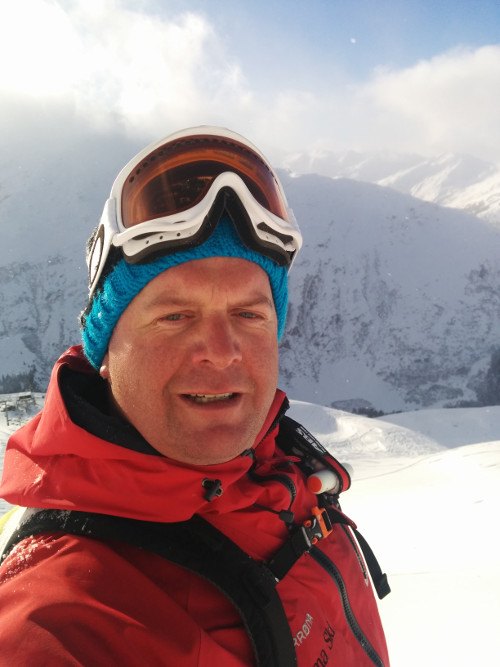
United Kingdom Tour Operator
Andy Butterworth is a Founder Partner and Director of UK-based Kaluma Travel, the operator of luxury chalets in St. Anton and Courchevel 1850. He has lived in Austria for over 15 years and splits the year between the Alps and the office. He shares his insights on ways forward for the ski industry in the wake of Covid-19.
“The more we can all help each other, the better. Whether that be with advice, information or simply some encouragement.”
WSA: What is the current status of operations at Kaluma Ski? How are you having to adapt your business so that you can offer holidays next winter?
AB: We haven’t changed to much at the moment. Rules and regulations, government, governing bodies are all changing their stances and suggestions so quickly that it is hard to plan ahead – as plans change all the time. We are open for business, with revised T&Cs in favour of the consumer in a bid to help encourage bookings. We remain flexible as possible and open to change. Whatever the rules and regs in place by December 2020, we will be sure to follow them and make sure the guests are well looked after, feel safe and confident in their booking and have the best holiday possible.
WSA: With so many factors beyond your control – from airlines and resorts to changing government legislation – what’s your approach to navigating the storm?
AB: We are securing the best and fairest contracts with our chalet owners, in a bid to be able to offer the best and safest terms to the guests – in terms of booking their holiday and the security of knowing refunds are possible should there be a second wave. Guests security and safety is key. Security in a financial sense and safety in a health and hygiene way.
WSA: How do you think the ski tourism industry will look after Coronavirus?
AB: In all optimism, pretty much the same. Rules will change so many times before December 2020 and there are so many businesses relying on the industry that no one in resort can afford a bad season. So for the sake of the industry and the locals and the guests, it has to be a normal season.
WSA: What do you see as the ‘new normal’ in the luxury ski chalet sector?
AB: With us, it’s going to be business as usual. Private chalets (private being the key word) – you get to choose who you come on holiday with and who you spend your time with. If our team have to wear masks or gloves or use hand sanitizer and special cleaning equipment, we will. If we have to put in extra measures on changeover days, we will. If “social distancing” is needed in chalets, we will make sure it’s done. Who knows – maybe longer chalet rentals, maybe even seasonal rentals. Maybe people will bring their own staff with them. Whatever the “new normal” is, we will be prepared to deliver the best possible holiday experience to the guests.
WSA: With many people curtailing their summer holidays, do you think this will lead to a surge in bookings for winter holidays, and ski in particular?
AB: I think so, yes. To some degree. The UK is the worry for many people. Only 50% of our market is UK based. Our overseas clients don’t seem to be worried yet. As long as travel opens, the airlines fly and airports open, people will come skiing. I think there will be a big surge in December and January. When it proves that resorts are all open, people have skied and travel is safe.
WSA: What trends in the ski tourism sector do you see emerging as a result of Covid-19?
AB: Honestly, at this stage, no idea. In Austria, at the moment (10th June) hotels are open, restaurants and bars are open. From the 15th June you no longer need to wear a face mask (only on public transport). Social distancing in bars and restaurants is almost impossible to enforce and maintain. People are desperate for it to be normal.
WSA: Why do you think collaboration across the ski industry is the key to tackling the post-crisis landscape?
AB: One thing I hope is maintained throughout the industry is the encouragement and good will between all companies. No one wants to see a fellow business go bust or give up. Its truly very very sad. The more we can all help each other, the better. Whether that be with advice, information or simply some encouragement.
WSA: What advice from your own experiences would you offer to other ski operators? And chalet owners?
AB: Stand fast and stay strong. The market will pick up and the season will go ahead. Don’t be too greedy and do what’s right. Have confidence in your product and your market and all being well we will all survive 19/20/21 and then seek the opportunity to get back to normal or improve…
WSA: Have there been any changes in your own outlook that you see as a positive reaction to the crisis?
AB: The fact that on the 20th March we never dreamt of having a holiday this year. I’m going on holiday tomorrow (11th June) for 4 days (within Austria, where I live). Great.
The fact that holiday destinations are opening up in the next weeks/months. The fact that airlines are planning their routes and starting to fly again. The fact that borders are beginning to open and quarantines are being lifted. The fact that everyone is fighting so hard to get back to normal is confidence enough that we are on the up….


Japan Accommodation Provider
Vacation Niseko manages a range of ski properties and organises in Niseko, Japan. World Ski Awards talks to Scott Mountford, Sales & Marketing Manager, about Vacation Niseko’s approaches to tackling the Covid challenges.
WSA: What is the current status of Vacation Niseko’s operations?
VN: Vacation Niseko is a Niseko based Property Manager / Travel Agent. We manage 13 properties in the resort and two of these are nominated in the World Ski Awards - Aspect and MUSE Niseko.
For winter, currently all of our properties are available to book. For summer bookings we have about 80 percent of our properties available to book at this stage. We have put in place our “Safe Stay Guarantee” initiative to help ensure our staff and guests feel comfortable and safe when staying with Vacation Niseko. We are also offering free 24-hour cancellation for summer stays and penalty-free cancellations for winter bookings until 1st September. Looking past this date, we are considering how we can best be of service to our guests and their plans if the situation shows no signs of improvement.
WSA: Describe what life was like in Niseko during lockdown?
VN: Fortunately, Niseko never truly went into full lockdown. Thanks to Niseko being in a remote area, we have only had a few local Covid cases reported, and because of that we have missed what seems to be the worst of the pandemic and the restrictions to daily living experienced by many of our guests. All businesses have health & safety policies in place to ensure people socially distance and wear masks, but these are already cultural norms here in Japan, so adjusting to this we feel has been easier than in other countries.
WSA: What changes are you having to make in how you operate your properties in the wake of Covid? And what changes is the resort having to make?
VN: For Vacation Niseko, the main changes will be around check-ins and check-outs, with a focus on digital and self-check-in/out processes and a move to more virtual guest support. We have also reconsidered our cleaning procedures and added more sanitisation tasks for our cleaning and front desk staff to ease heightened concern over cleanliness after the outbreak.
We are also looking at how we interact with the guests across all of our operations and seeing how we can make this safer and more comfortable for everyone involved.
In terms of the ski resort, I think the biggest change will be around lift management, lift queues and any type of group product offered in the resort.
WSA: What do you think the ski tourism industry will look like after Coronavirus?
VN: I don’t see large structural change here, but I do see a shift in how resorts manage their guests. There may be some limitations on the number of people allowed on the resort, how we queue for lifts or the number of people allowed on a lift at any one time. These additional steps will be offset by reduced crowds initially, with both improving over time.
There will be a shift towards private activity offerings over groups and the restaurant spaces will need to take into account the need for better spacing between groups. We may see a preferential shift to condominiums over hotels as it gives flexibility to the guests to cook and relax in their own private space and less time spent in common areas.
WSA: Why will collaboration across the ski industry be the key to navigating the post-virus landscape?
VN: If it can be proven that the ski industry can operate safely then I think this will be the key message promoted by the entire industry to help draw people back to the mountains when they are able to travel again. The passion to go skiing is always there, so people will be looking for that certainty that it is safe.
WSA: Ski businesses across the world will have to work harder to attract guests as the market recovers. What methods are you using to attract visitors back? And what’s your message to skiers?
VN: This is a work in progress as there is still so much uncertainty about what will happen next and when. What we do have working in our favour is the fact that you can comfortably socially distance in Niseko in the summer and winter (of course this also depends on how the resort manages guests). There are also so many activities to enjoy outdoors and away from crowds so in general, we feel this is a great place to choose for a safe holiday.
WSA: Have there been any changes in your own outlook that you see as a positive reaction to the crisis?
VN: The biggest positive we have seen from the Covid crisis has been the adaptation to change within the company. We are looking forward to streamlining some of our operational processes and moving more into the digital space, like enabling remote working for our office staff and paperless check-in/out procedures.
As Niseko usually relies heavily on the inbound market for its visitors, we are also looking towards reconsidering the importance of a domestic market to our company and other travel agencies. We have an opportunity to review experiences, pricing and value of our product and potentially make changes to better include the Japanese market, which is often absent in the winter season, unlike smaller resorts in Japan.
Resources:
- Vacation Niseko’s Safe Stay Guarantee: https://vacationniseko.com/en/niseko-safe-stay
- VN Director’s Initial Response to Covid: https://vacationniseko.com/news/response-to-covid-19
- Free cancellation policy information: https://vacationniseko.com/en/special-offers/next-winter-free-cancellation-before-september-1

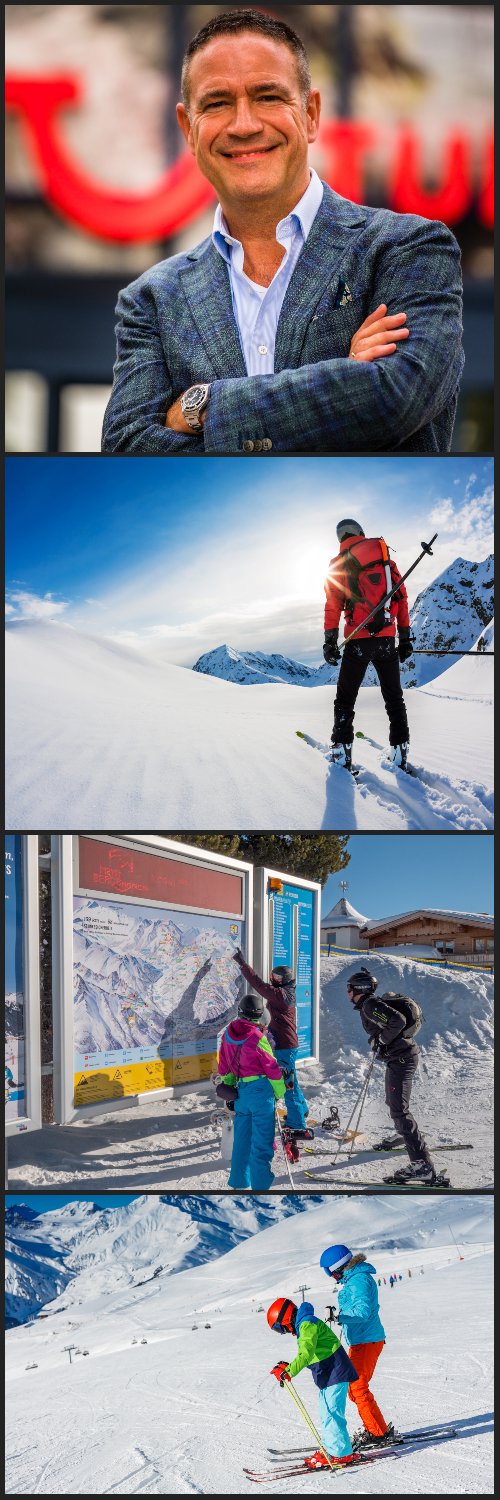
Benelux Ski Tour Operator
As one of Europe’s winter sport operators, TUI Benelux has its fingers firmly on the pulse of consumer booking trends for next winter season. Frans Leenaars, Western Region Marketing Director, shares his thoughts on the emerging trends as the ski industry gears up for international travel.
WSA: What is the current status of operations at TUI’s winter sports programme? And can you give a brief overview of how the past year has mapped out?
FL: We are moving full speed ahead to have the complete range of hotels and arrangements ready for our clients to book and enjoy. We had to skip the entire winter sports programme last season. We have noticed that people really missed their winter sports holiday and are now eagerly making reservations for next season. Bookings are made much earlier than usual. We at TUI have a positive outlook on the future and we are doing everything we can to offer the best possible ski holidays to our clients.
WSA: With the resumption of international travel thankfully back on the horizon, how do you see the next ski season taking shape?
FL: Those who missed their ski holidays last winter, might want to compensate this by booking two or maybe three trips to the snow this year. Even though the majority of the people will be vaccinated by the start of the ski season, everybody will still be cautious, and big après-ski parties/events with a many people will probably not take place yet. The focus will be on winter sports themselves and ‘après-ski’ will be limited to a drink or a dinner in a cosy setting with just a few people. At the moment, ski areas are still preparing their protocols for the next winter season.
WSA: What changes in the way you operate the business have you had to implement?
FL: During the past winter season, the number of cancelled holidays unfortunately outweighed the number of booked holidays. At the moment, we are closely monitoring the changing travel advice as issued by governments. We are guided by those on our travel options. We are providing our clients with the most flexible booking conditions possible to encourage them to make their reservations now.
WSA: Why do you think collaboration across the ski industry is the key to tackling the post-pandemic landscape?
FL: What is most important is that people have sufficient confidence to book a trip again, and we have to assume that the winter of 2021-2022 will be an almost normal winter season. Accommodation suppliers, tour operators, ski resorts and cable companies have to work together in order to guarantee a safe holiday at the destination of the customers’ choice. If we all work together and help each other, ultimately the customer will benefit from this.
WSA: What trends in ski tourism do you see emerging as the recovery gets underway?
FL: The biggest change we see is in the choice of accommodation. Customers book more and more self-catering accommodation. All the uncertainty over the last 18 months and not knowing what next winter will look like have created a tendency among travellers to want to spend their ski holidays in their own ‘bubble’. By staying in their own accommodation, they can reduce contact with other groups.
#ReStart: Strategic Insights from Ski Industry Experts across the World
Click on the exclusive interviews below to find out how ski industry leaders are tackling the Covid crisis.

